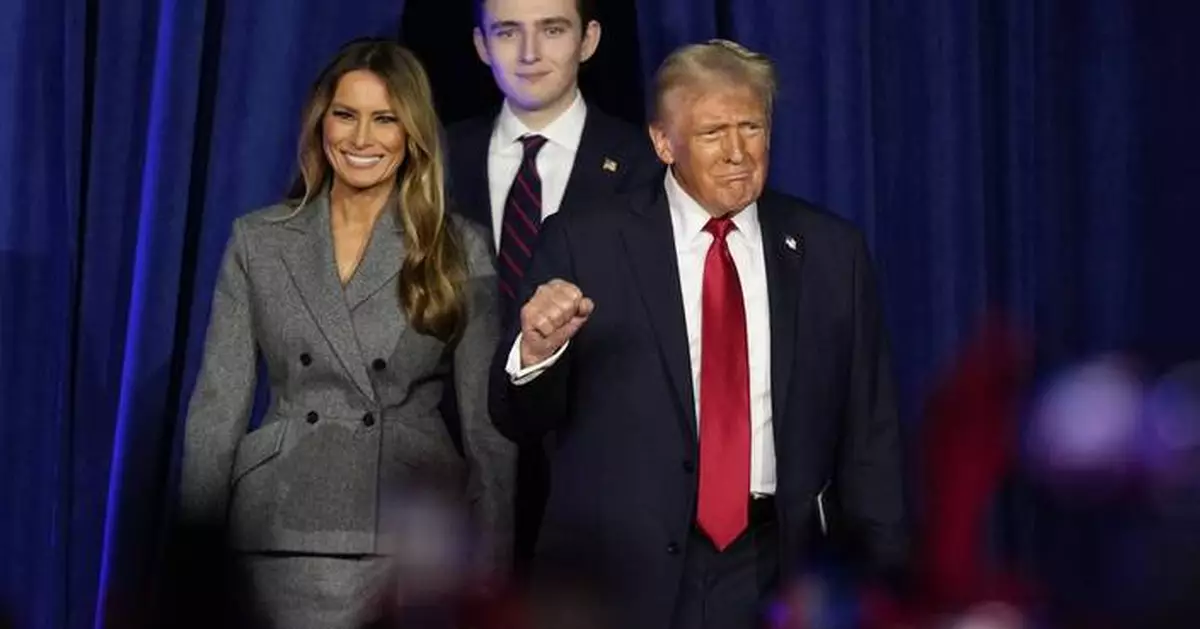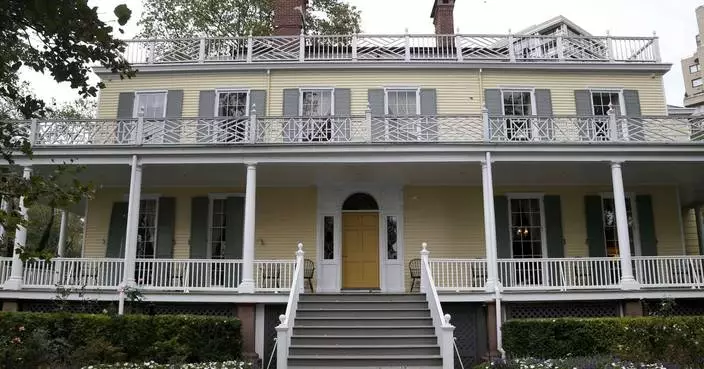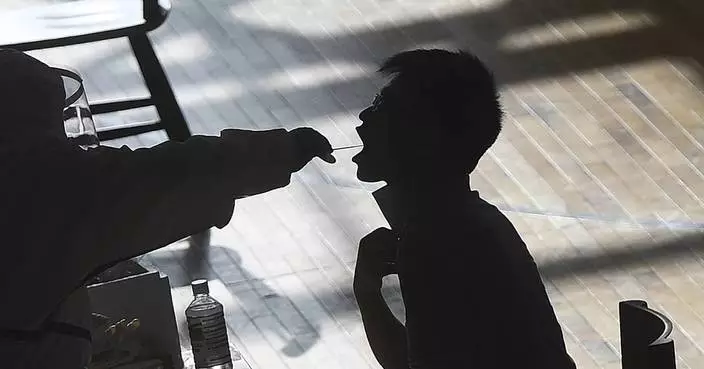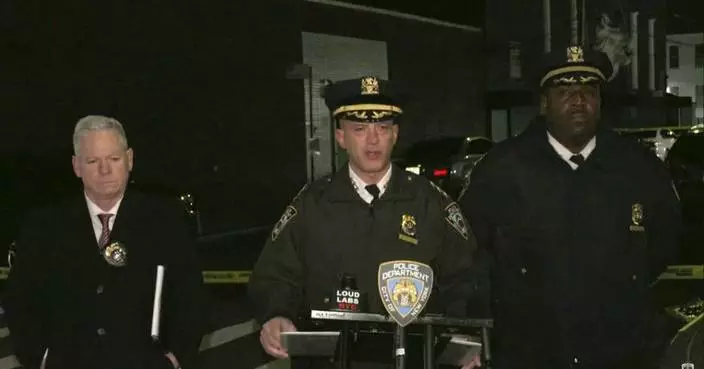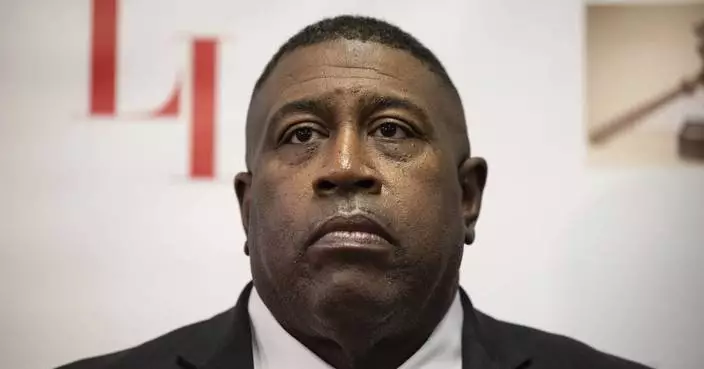WASHINGTON (AP) — The judge overseeing Donald Trump's 2020 election interference case canceled any remaining court deadlines Friday while prosecutors assess the “the appropriate course going forward” in light of the Republican's presidential victory.
Special Counsel Jack Smith charged Trump last year with plotting to overturn the results of the 2020 presidential election and illegally hoarding classified documents at his Mar-a-Lago estate. But Smith's team has been evaluating how to wind down the two federal cases before the president-elect takes office because of longstanding Justice Department policy that says sitting presidents cannot be prosecuted, a person familiar with the matter told The Associated Press.
Trump's victory over Vice President Kamala Harris means that the Justice Department believes he can no longer face prosecution in accordance with department legal opinions meant to shield presidents from criminal charges while in office.
Trump has criticized both cases as politically motivated, and has said he would fire Smith “within two seconds” of taking office.
In a court filing Friday in the 2020 election case, Smith's team asked to cancel any upcoming court deadlines, saying it needs “time to assess this unprecedented circumstance and determine the appropriate course going forward consistent with Department of Justice policy."
U.S. District Judge Tanya Chutkan quickly granted the request, and ordered prosecutors to file court papers with their “proposed course for this case” by Dec. 2.
Trump had been scheduled to stand trial in March in Washington, where more than 1,000 of his supporters have been convicted of charges for their roles in the Capitol riot. But his case was halted as Trump pursued his sweeping claims of immunity from prosecution that ultimately landed before the U.S. Supreme Court.
The Supreme Court in July ruled that former presidents have broad immunity from prosecution, and sent the case back to Chutkan to determine which of the the allegations in the indictment can move forward.
The classified documents case has been stalled since July when a Trump-appointed judge, Aileen Cannon, dismissed it on grounds that Smith was illegally appointed. Smith has appealed to the Atlanta-based 11th U.S. Circuit Court of Appeals, where the request to revive the case is pending. Even as Smith looks to withdraw the documents case against Trump, he would seem likely to continue to challenge Cannon’s ruling on the legality of his appointment given the precedent such a ruling would create.
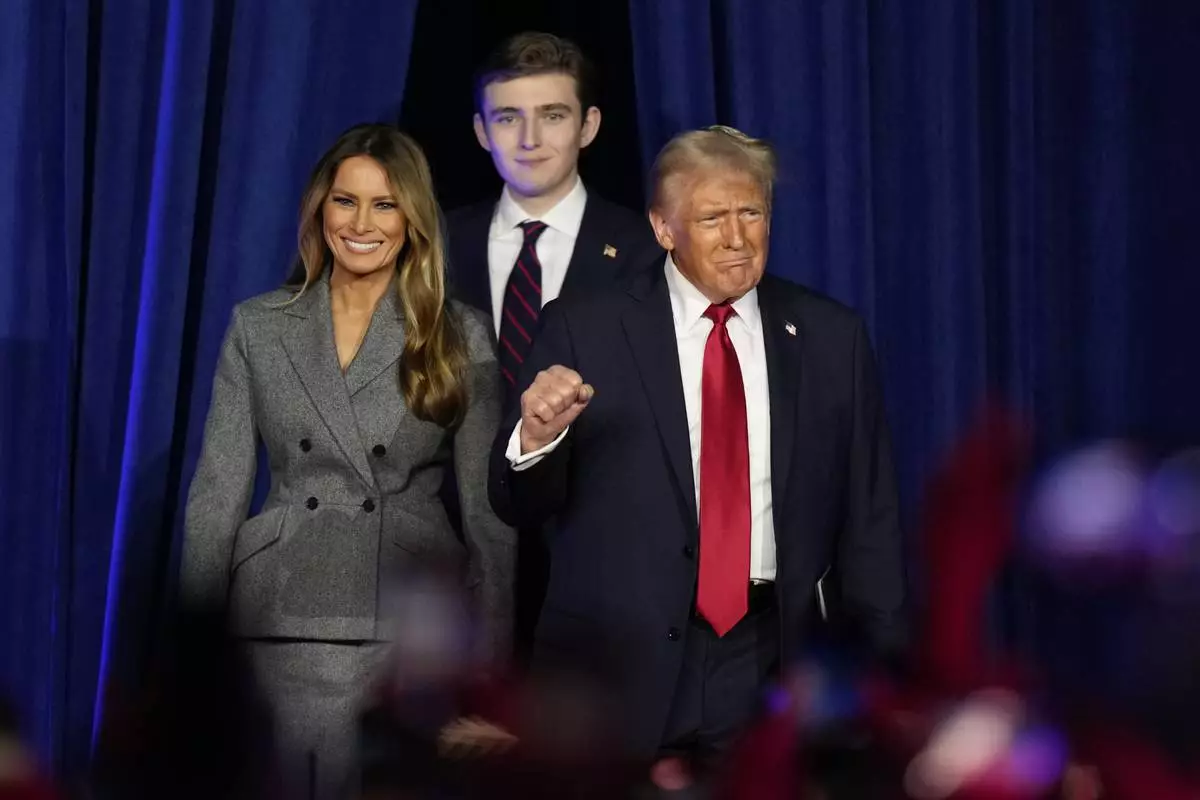
Republican presidential nominee former President Donald Trump, joined by Melania Trump, left, and Barron Trump, arrives to speak at an election night watch party, Wednesday, Nov. 6, 2024, in West Palm Beach, Fla. (AP Photo/Alex Brandon)
NEW ORLEANS (AP) — The U.S. Army veteran who drove a pickup truck into a crowd of New Year’s revelers acted alone, the FBI said Thursday, reversing its position from a day earlier that he likely worked with others in the deadly attack that officials said was inspired by the Islamic State group.
The FBI also revealed that the driver, Shamsud-Din Jabbar, a U.S. citizen from Texas, posted five videos on his Facebook account in the hours before the attack in which he proclaimed his support for the militant group and previewed the violence that he would soon unleash in the city's famed French Quarter district.
“This was an act of terrorism. It was premeditated and an evil act,” said Christopher Raia, the deputy assistant director of the FBI's counterterrorism division, calling Jabbar “100% inspired” by the Islamic State.
The attack killed 14 revelers, along with Jabbar, who was fatally shot in a firefight with police after steering his speeding truck around a barricade and plowing into the crowd.
It was the deadliest IS-inspired assault on U.S. soil in years, laying bare what federal officials have warned is a resurgent international terrorism threat. That threat is emerging as the FBI and other agencies brace for dramatic leadership upheaval after President-elect Donald Trump's administration takes office.
Seeking to assuage concerns about any broader plots, Raia stressed that there was no indication of a connection between the New Orleans attack and a Tesla Cybertruck explosion Wednesday outside Trump’s Las Vegas hotel.
The FBI continued to hunt for clues, but said that 24 hours into its investigation, it was now confident that the 42-year-old Jabbar was not aided by anyone else in the attack, which killed an 18-year-old aspiring nurse, a father of two and a former Princeton University football star.
Officials have reviewed surveillance video showing people standing near an improvised explosive device that Jabbar placed in a cooler along the city's Bourbon Street, where the attack occurred, but authorities “do not believe at this point these people are involved ... in any way,” Raia said.
Investigators were also trying to understand more about Jabbar's path to radicalization, which they say culminated with him picking up a rented truck in Houston on Dec. 30 and driving it to New Orleans the following night.
The FBI recovered a black Islamic State flag from his rented pickup and reviewed five videos posted to Facebook, including one in which he said he originally planned to harm his family and friends, but was concerned that news headlines would not focus on the “war between the believers and the disbelievers,” Raia said. He also left a last will and testament, the FBI said.
Jabbar joined the Army in 2007, serving on active duty in human resources and information technology and deploying to Afghanistan from 2009 to 2010, the service said. He transferred to the Army Reserve in 2015 and left in 2020 with the rank of staff sergeant.
Abdur-Rahim Jabbar, Jabbar's younger brother, told The Associated Press on Thursday that it “doesn’t feel real” that his brother could have done this.
“I never would have thought it’d be him,” he said. “It’s completely unlike him.”
He said that his brother had been isolated in the last few years, but that he had also been in touch with him and he didn’t see any signs of radicalization.
“It’s completely contradictory to who he was and how his family and his friends know him,” he said.
In New Orleans on Thursday, a still-reeling city inched back toward normal operations. Authorities finished processing the scene early in the morning, removing the last of the bodies, and Bourbon Street was set to reopen at some point later in the day, according to an official familiar with the matter who spoke on condition of anonymity to the AP.
The Sugar Bowl college football game between Notre Dame and Georgia, initially set for Wednesday night and postponed by a day in the interest of national security, was still on for Thursday. The city planned to host the Super Bowl next month.
“This is one of the safest places on earth," Louisiana Gov. Jeff Landry said. "It doesn’t mean that nothing can't happen.”
Tucker reported from Washington, and Mustian reported from Black Mountain, North Carolina. Associated Press reporters Stephen Smith, Chevel Johnson and Brett Martel in New Orleans; Jeff Martin in Atlanta; Alanna Durkin Richer, Tara Copp and Zeke Miller in Washington; Darlene Superville in New Castle, Delaware; Colleen Long in West Palm Beach, Florida; and Michael R. Sisak in New York contributed to this report.
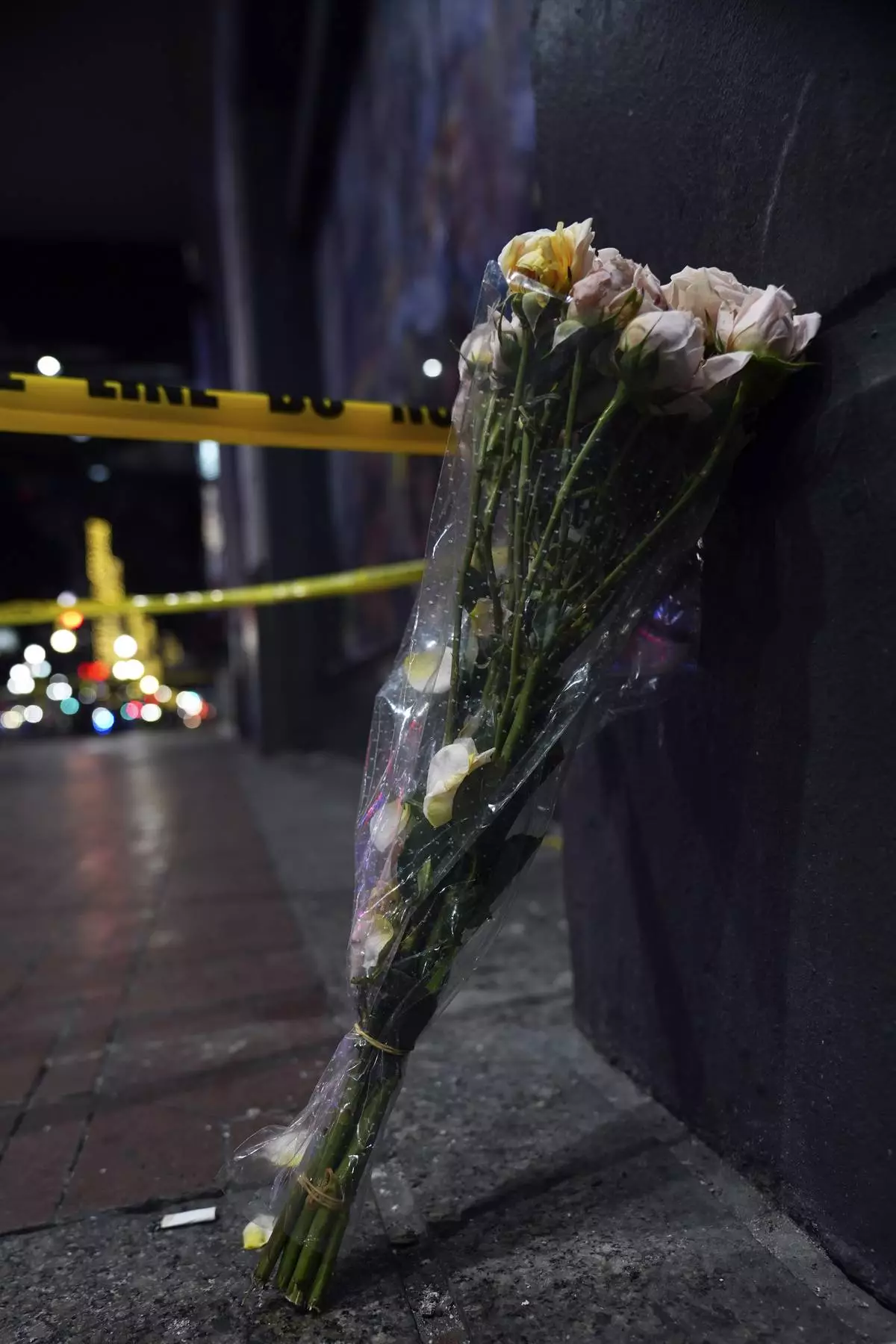
Flowers are seen near where a vehicle drove into a crowd on New Orleans' Canal and Bourbon streets, Wednesday, Jan. 1, 2025. (AP Photo/George Walker IV)
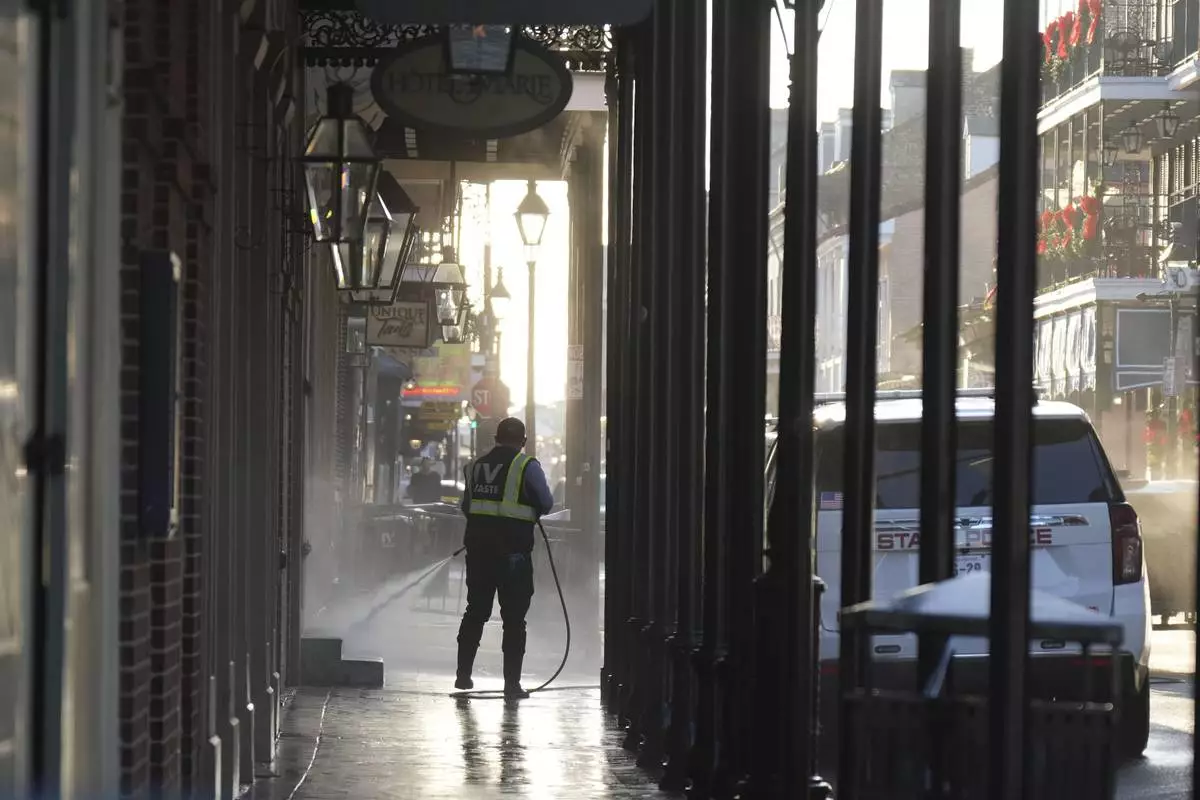
A man uses a power washer on Toulouse street a day after a vehicle was driven into a crowd on New Orleans' Canal and Bourbon streets, Thursday, Jan. 2, 2025. (AP Photo/George Walker IV)
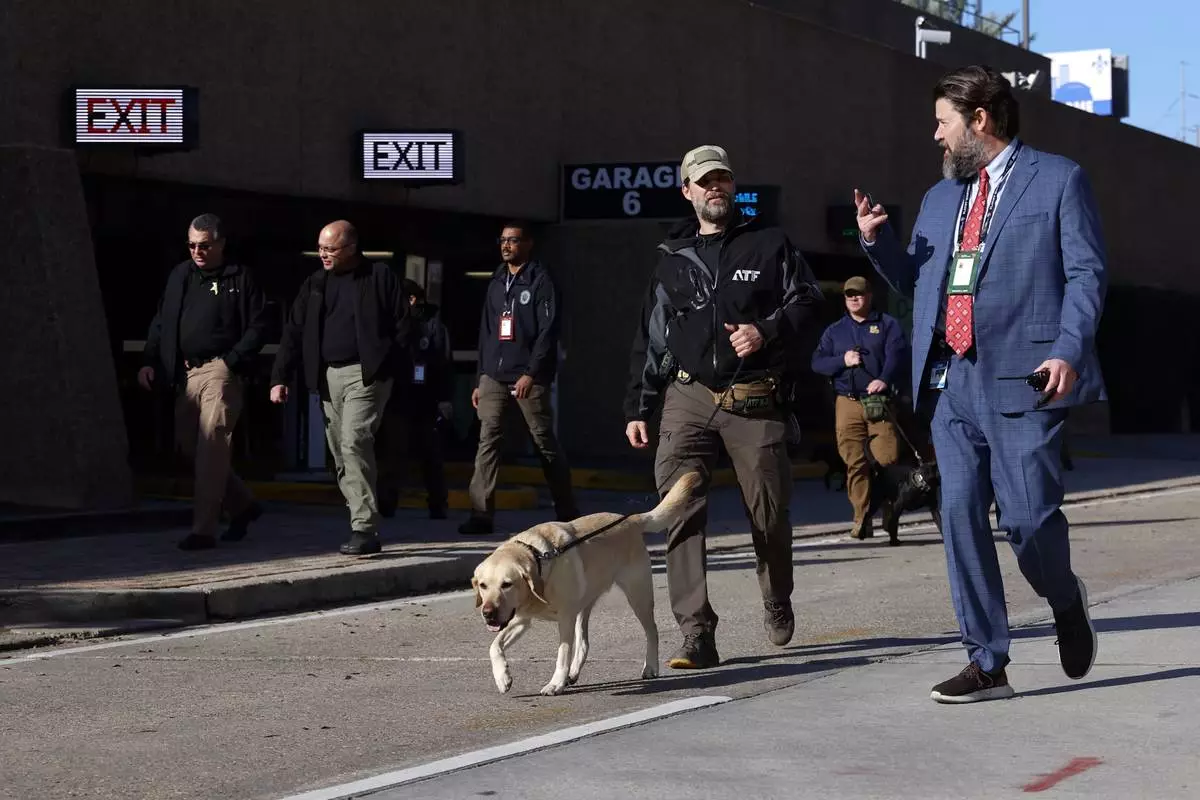
Security with bomb sniffing dogs patrol the area around the Superdome ahead of the Sugar Bowl NCAA College Football Playoff game, Thursday, Jan. 2, 2025, in New Orleans. (AP Photo/Butch Dill)
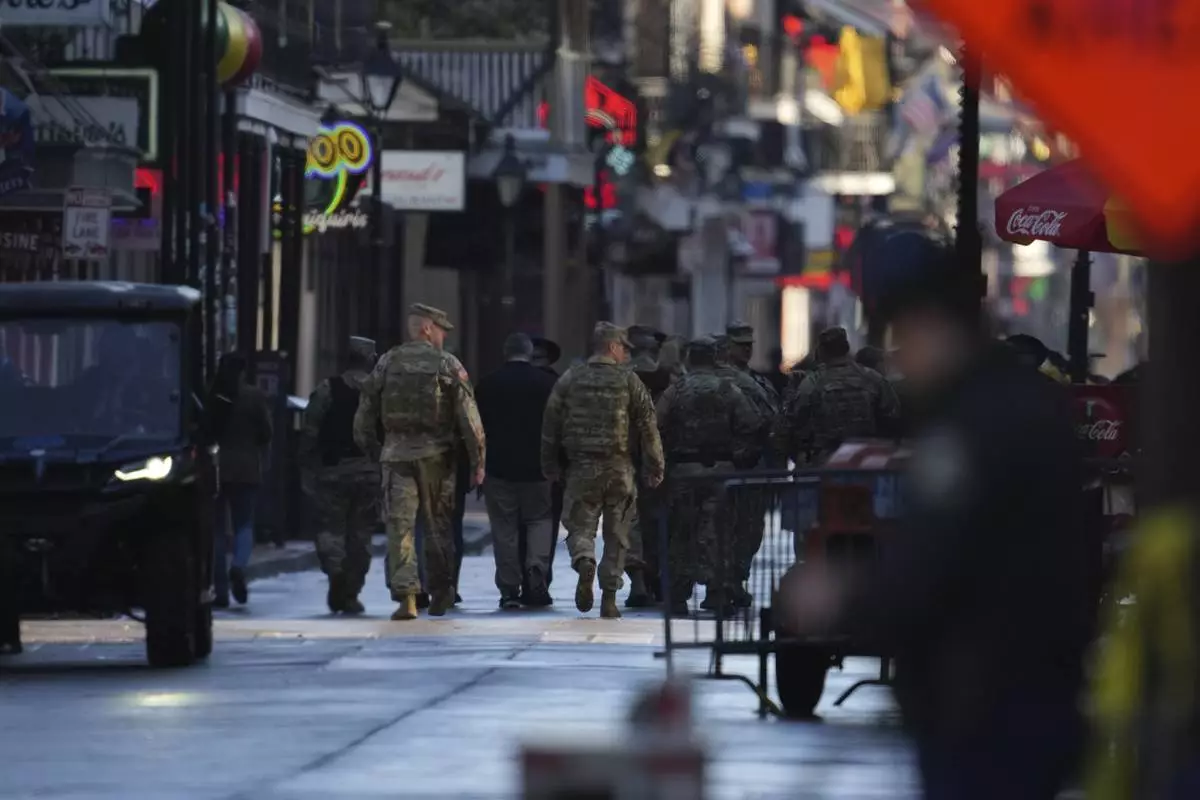
Military personnel walk down Bourbon street, Thursday, Jan. 2, 2025 in New Orleans. (AP Photo/George Walker IV)
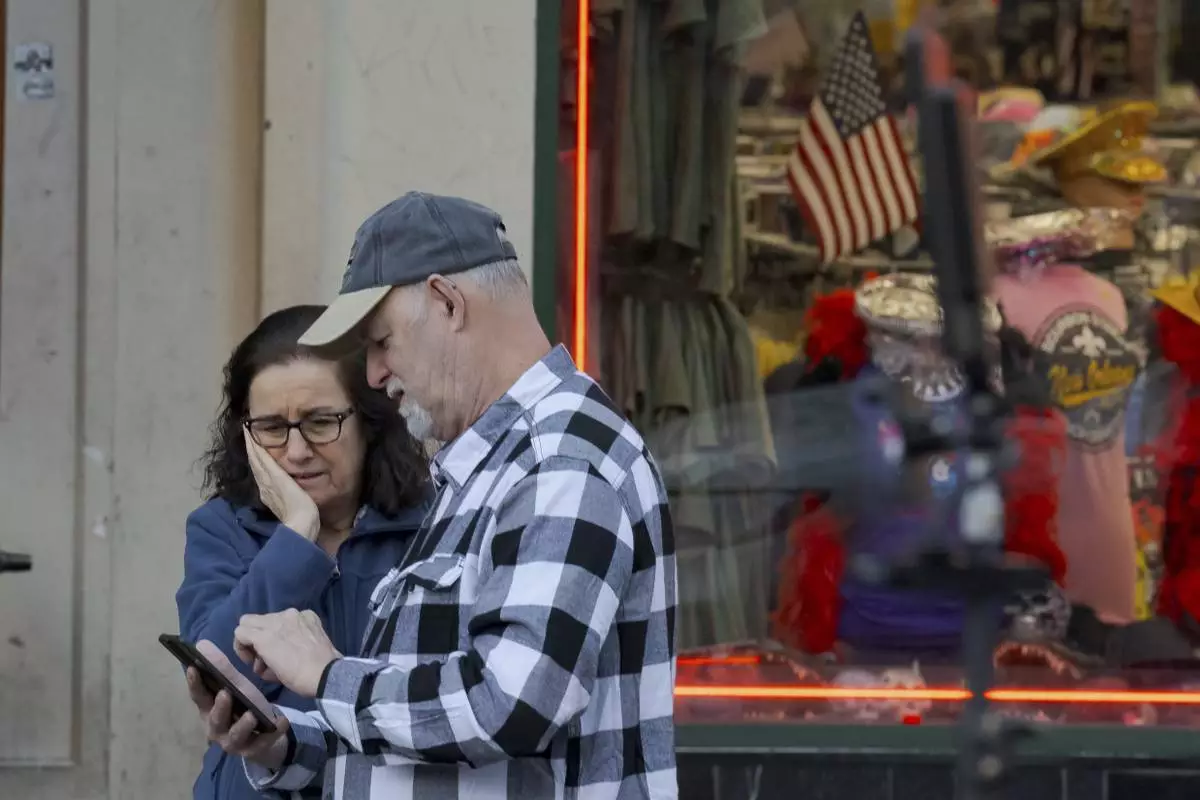
People react at the intersection of Bourbon Street and Canal Street during the investigation after a pickup truck rammed into a crowd of revelers early on New Year's Day, Wednesday, Jan. 1, 2025, in New Orleans. (AP Photo/Matthew Hinton)
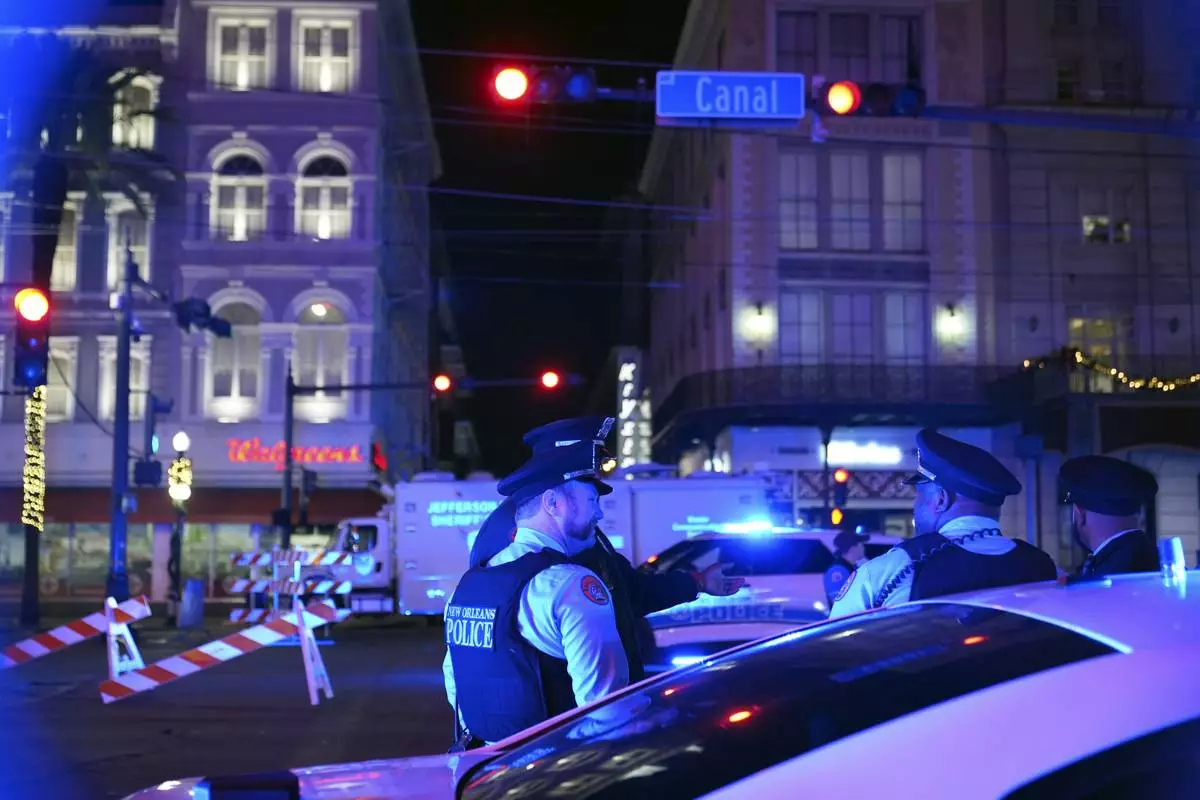
Police officers stand near the scene where a vehicle drove into a crowd on New Orleans' Canal and Bourbon streets, Wednesday, Jan. 1, 2025. (AP Photo/George Walker IV)

Matthias Hauswirth of New Orleans prays on the street near the scene where a vehicle drove into a crowd on New Orleans' Canal and Bourbon streets, Wednesday, Jan. 1, 2025. (AP Photo/George Walker IV)
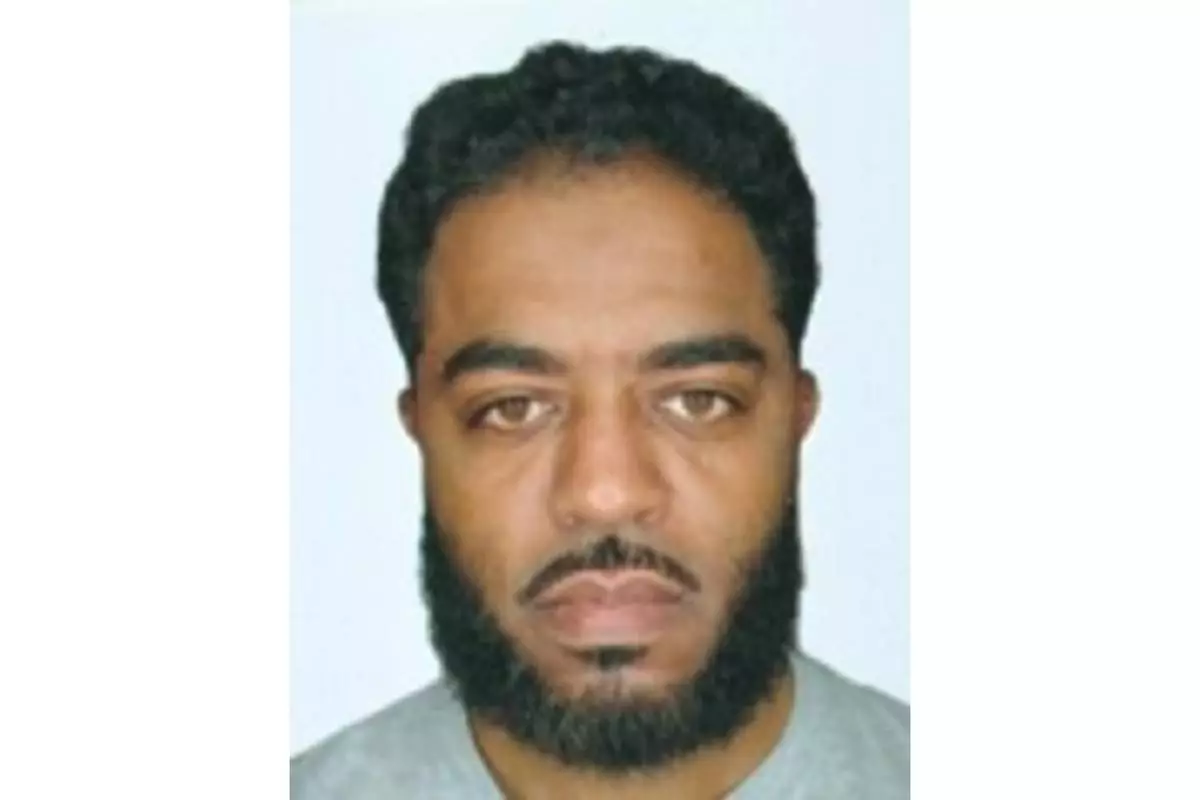
This undated passport photo provided by the FBI on Wednesday, Jan. 1, 2025, shows Shamsud-Din Bahar Jabbar. (FBI via AP)
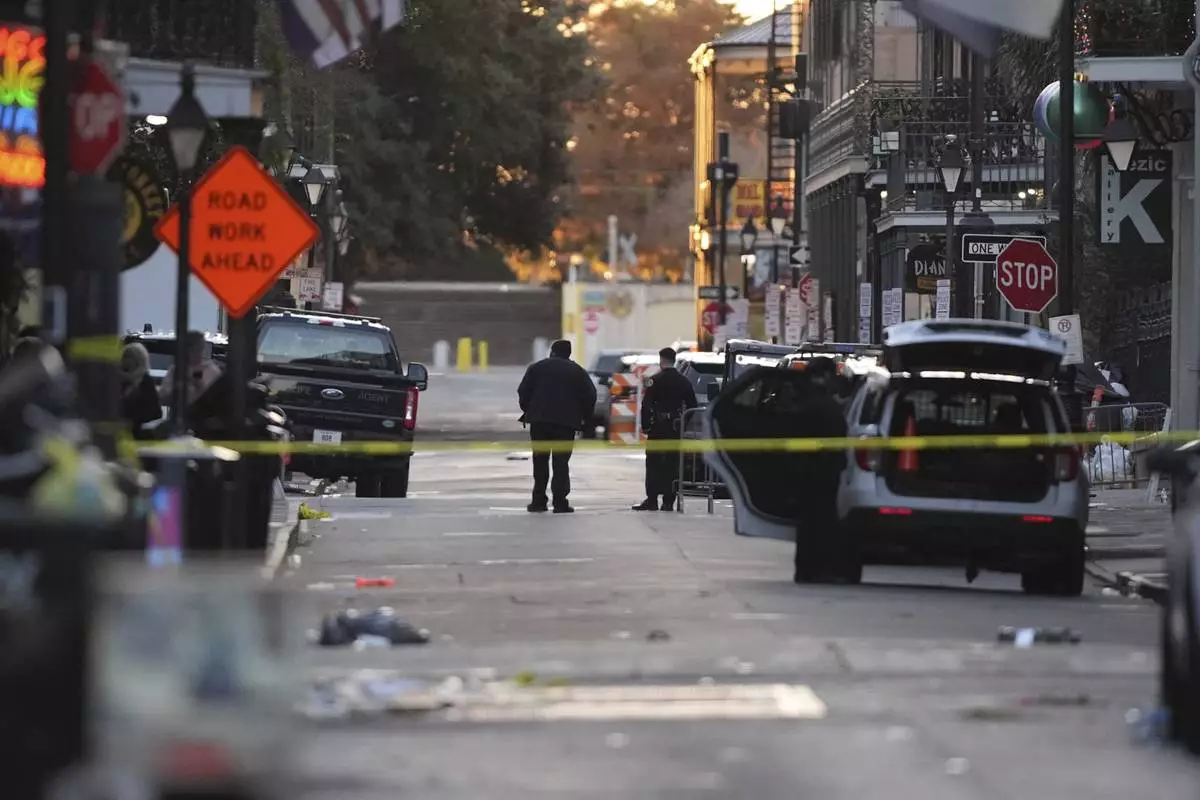
Emergency services attend the scene after a vehicle drove into a crowd on New Orleans' Canal and Bourbon Street, Wednesday Jan. 1, 2025. (AP Photo/Gerald Herbert)
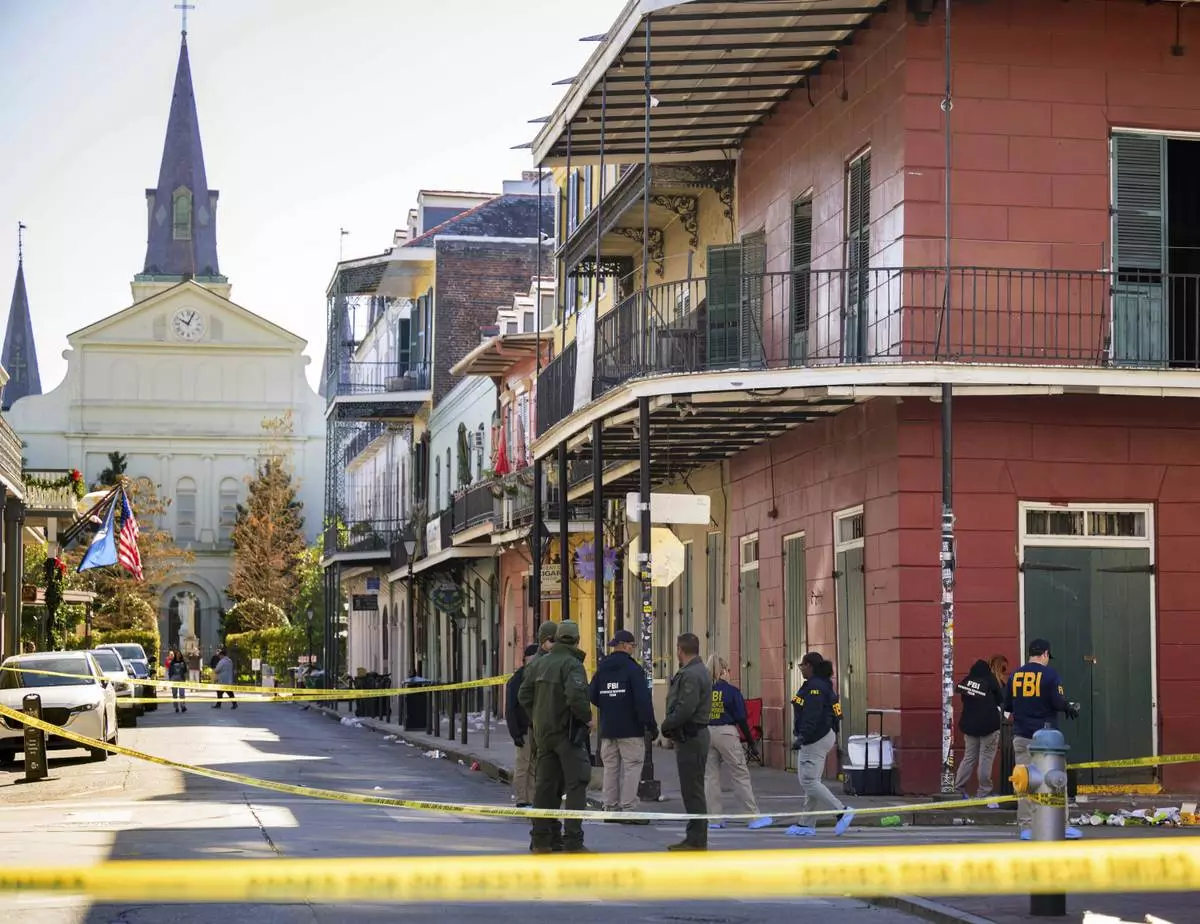
The FBI investigates the area on Orleans St and Bourbon Street by St. Louis Cathedral in the French Quarter where a suspicious package was detonated after a person drove a truck into a crowd earlier on Bourbon Street on Wednesday, Jan. 1, 2025. (AP Photo/Matthew Hinton)
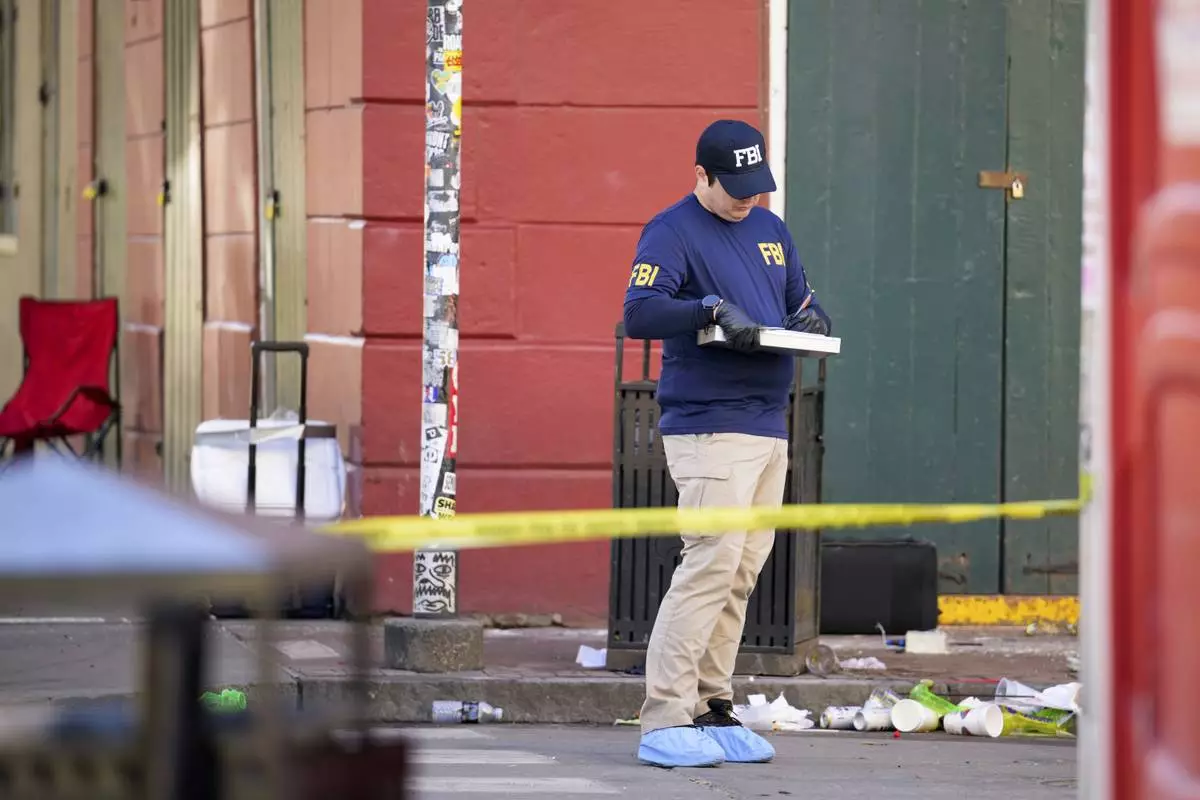
The FBI investigates the area on Orleans St and Bourbon Street by St. Louis Cathedral in the French Quarter where a suspicious package was detonated after a person drove a truck into a crowd earlier on Bourbon Street on Wednesday, Jan. 1, 2025. (AP Photo/Matthew Hinton)
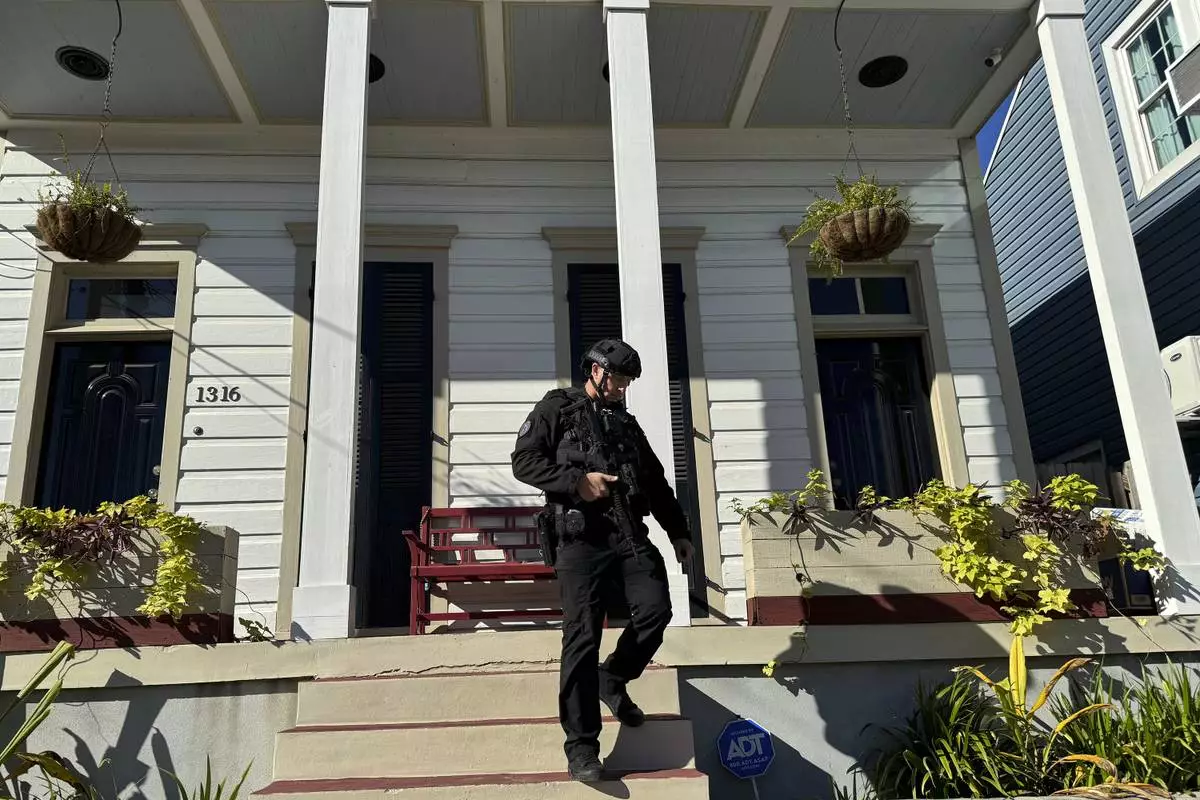
A New Orleans police officer searches the area near a crime scene after a vehicle drove into a crowd on Canal and Bourbon Street earlier, Wednesday Jan. 1, 2025. (AP Photo/Jack Brook)
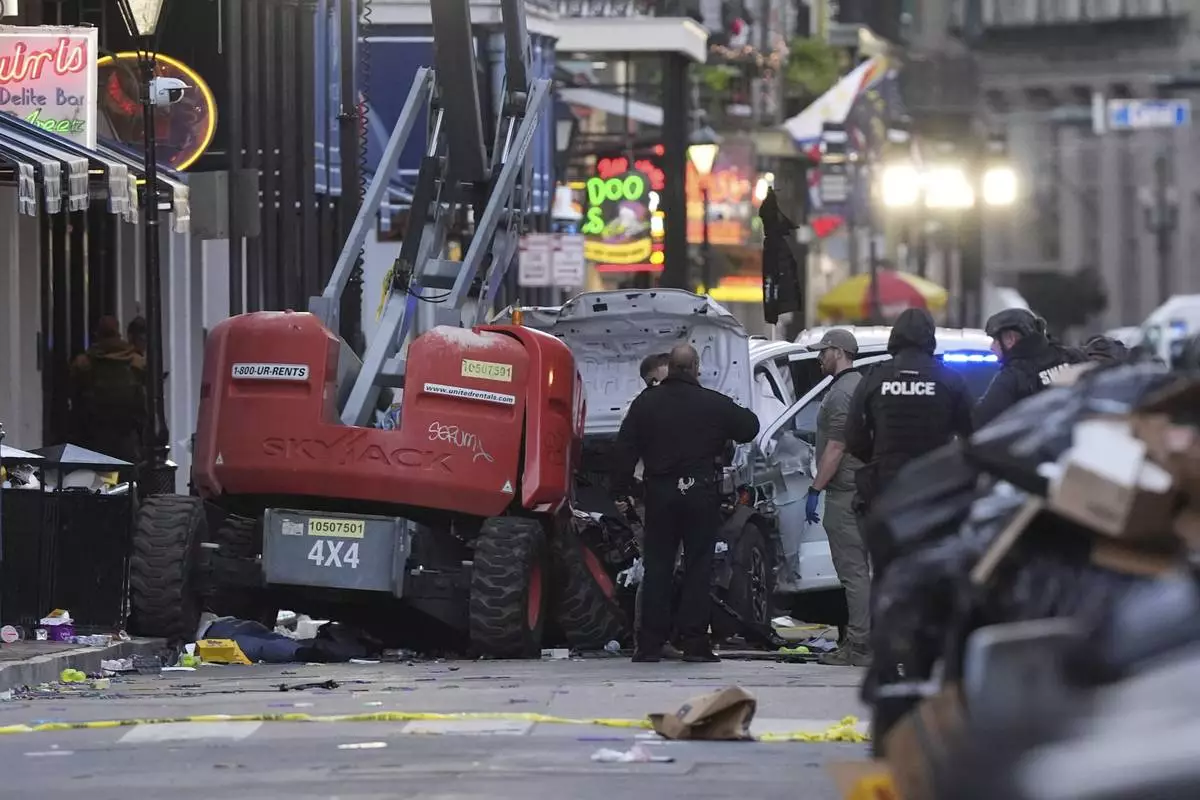
EDS NOTE: GRAPHIC CONTENT - Emergency personnel work the scene on Bourbon Street after a vehicle drove into a crowd on New Orleans' Canal and Bourbon Street, Wednesday Jan. 1, 2025. (AP Photo/Gerald Herbert)
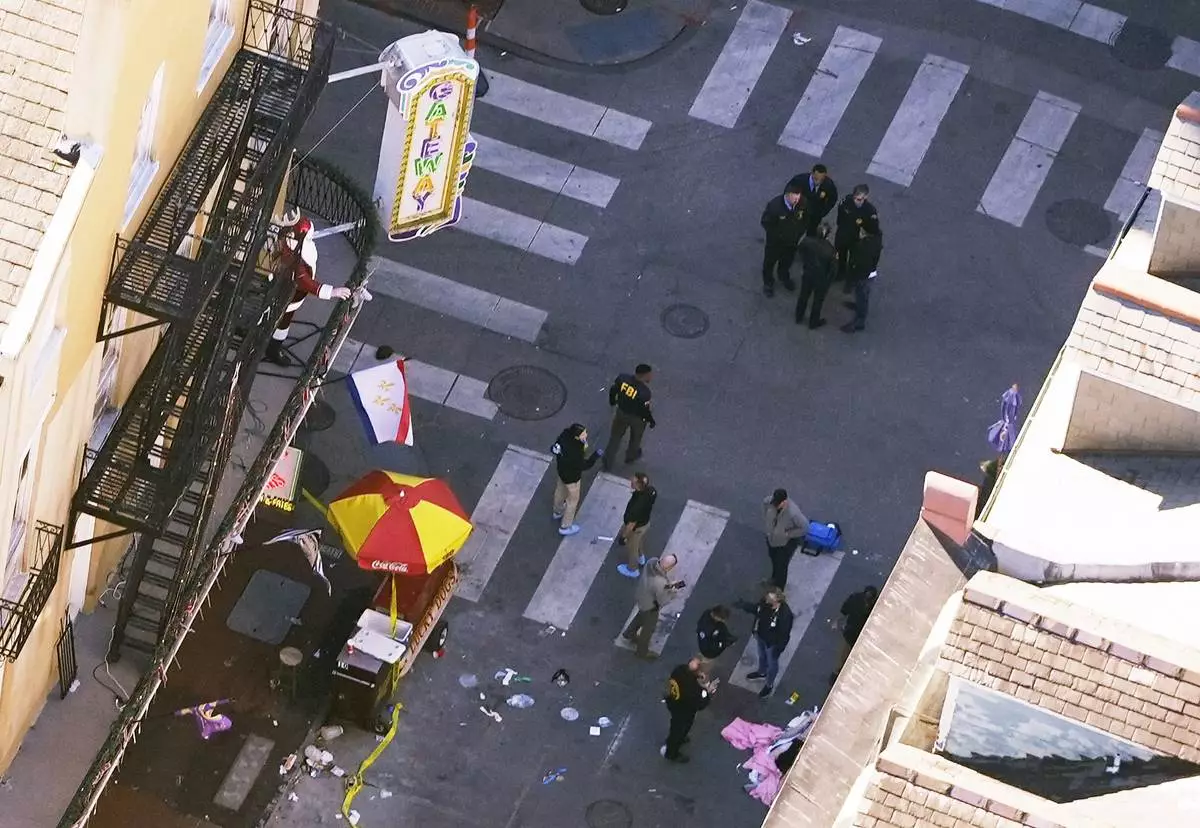
Investigators work the scene after a person drove a vehicle into a crowd killing several, earlier on Canal and Bourbon Street in New Orleans, Wednesday, Jan. 1, 2025. (AP Photo/Gerald Herbert)
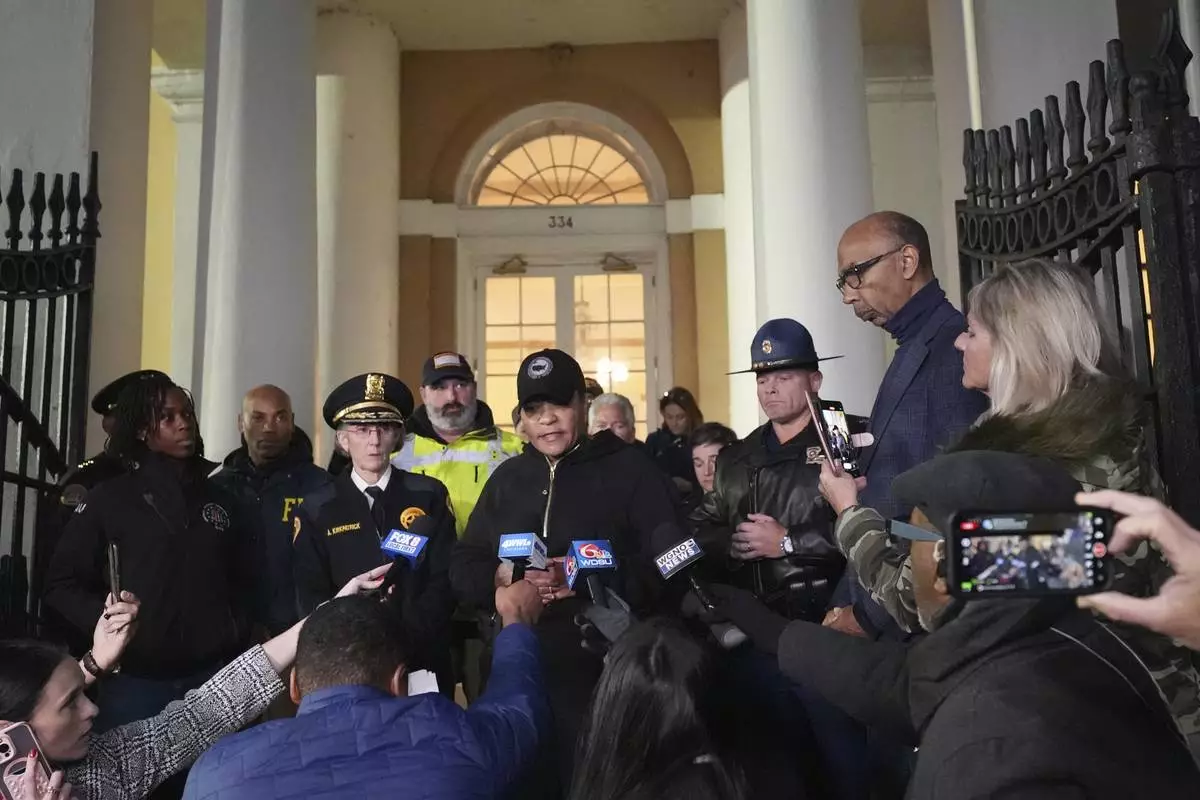
New Orleans mayor LaToya Cantrell makes a statement after a vehicle drove into a crowd on New Orleans' Canal and Bourbon Street, Wednesday Jan. 1, 2025. (AP Photo/Gerald Herbert)
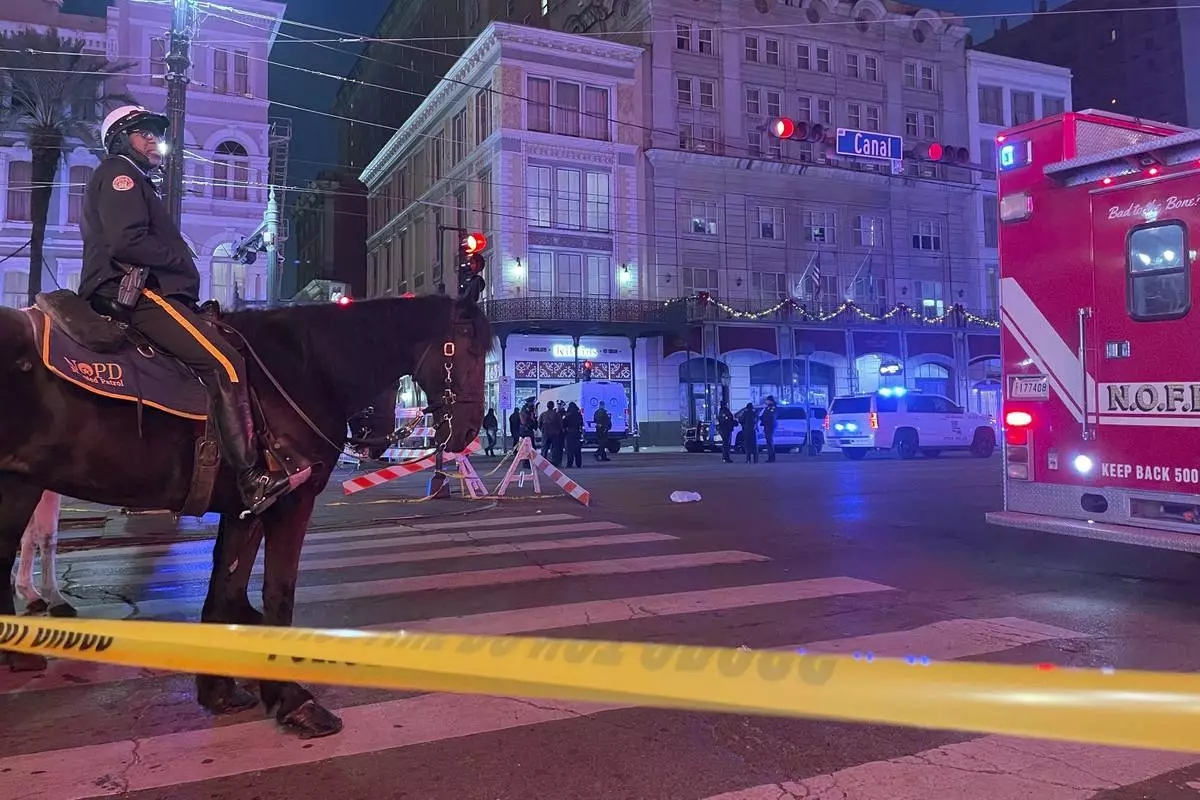
A mounted police officer arrives on Canal Street after a vehicle drove into a crowd earlier in New Orleans, Wednesday Jan. 1, 2025. (AP Photo/Kevin McGill)
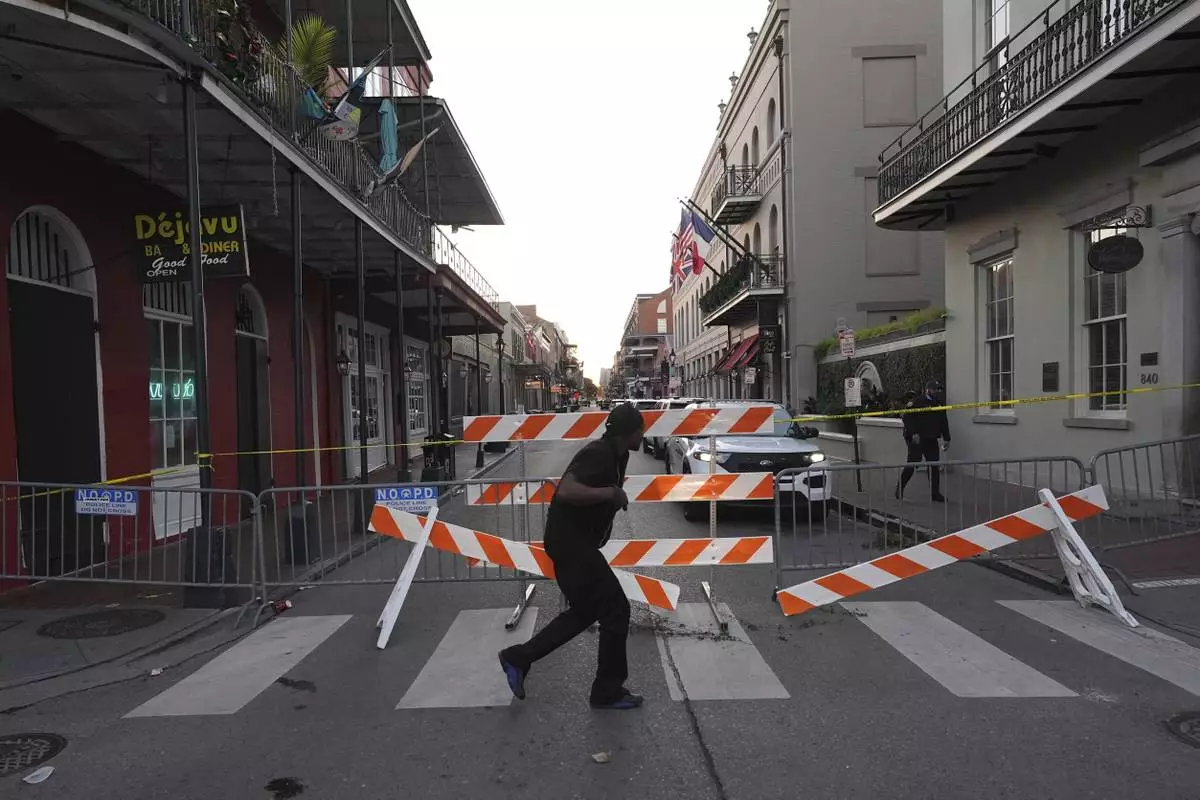
A police barricade near the scene after a vehicle drove into a crowd on New Orleans' Canal and Bourbon Street, Wednesday Jan. 1, 2025. (AP Photo/Gerald Herbert)
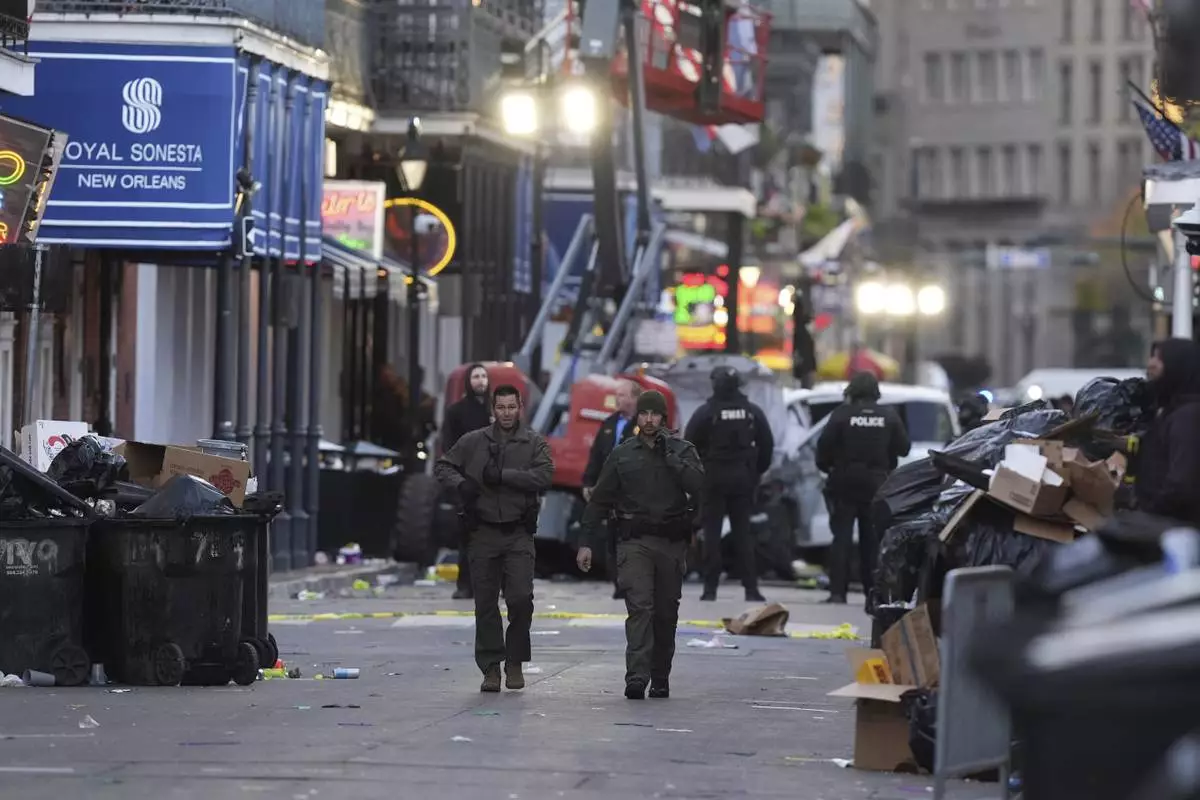
Emergency services attend the scene after a vehicle drove into a crowd on New Orleans' Canal and Bourbon Street, Wednesday Jan. 1, 2025. (AP Photo/Gerald Herbert)
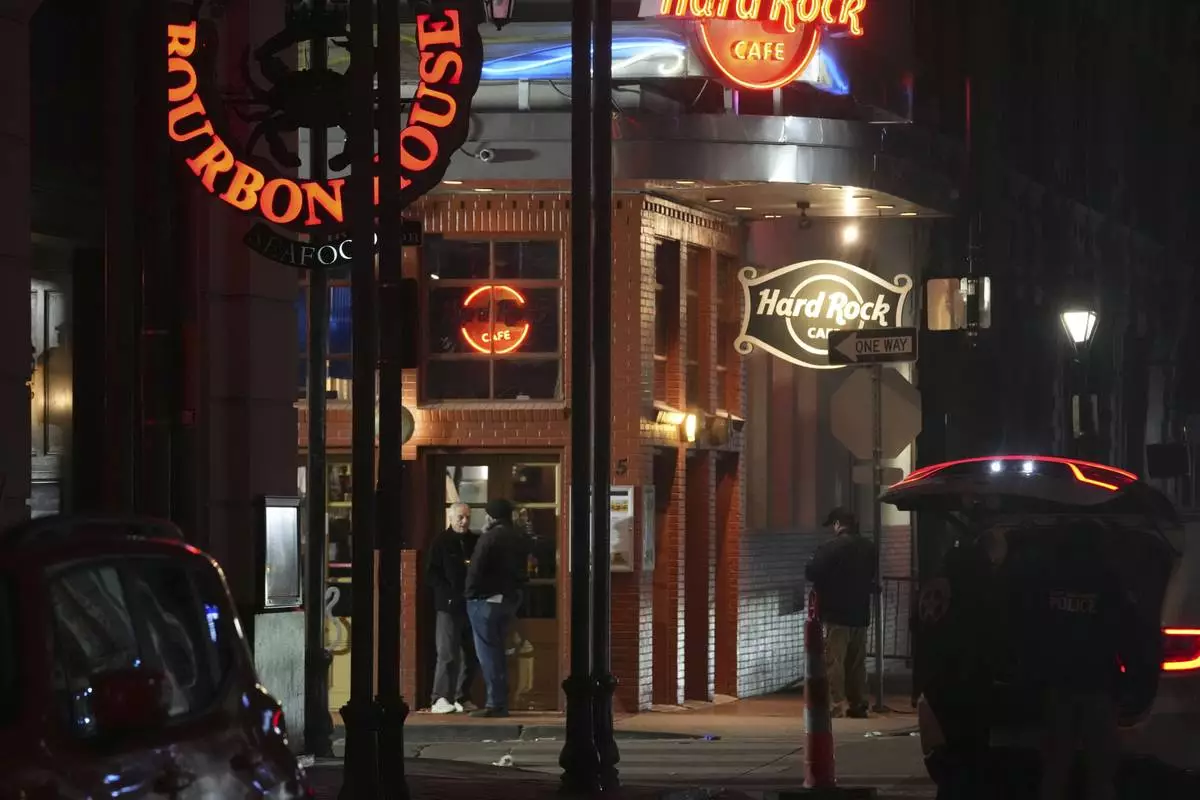
The scene after a vehicle drove into a crowd on New Orleans' Canal and Bourbon Street, Wednesday Jan. 1, 2025. (AP Photo/Gerald Herbert)
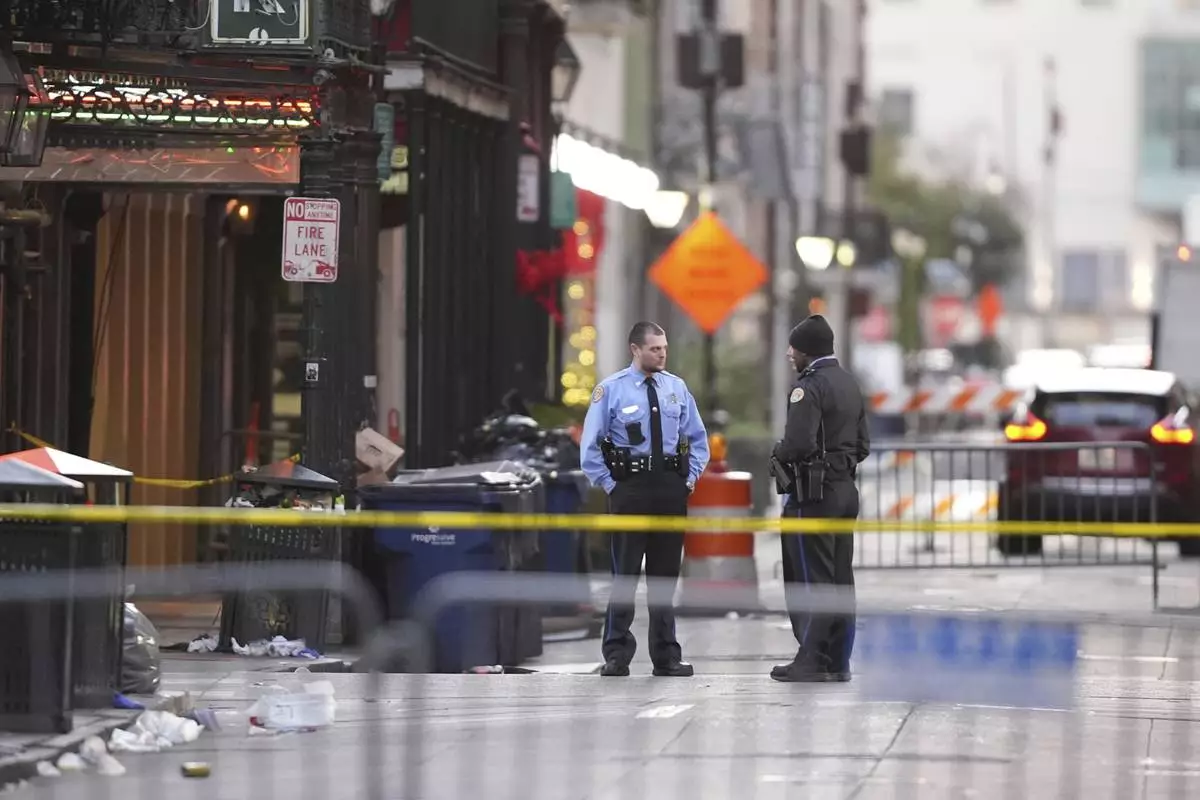
Emergency services attend the scene on Bourbon Street after a vehicle drove into a crowd on New Orleans' Canal and Bourbon Street, Wednesday Jan. 1, 2025. (AP Photo/Gerald Herbert)
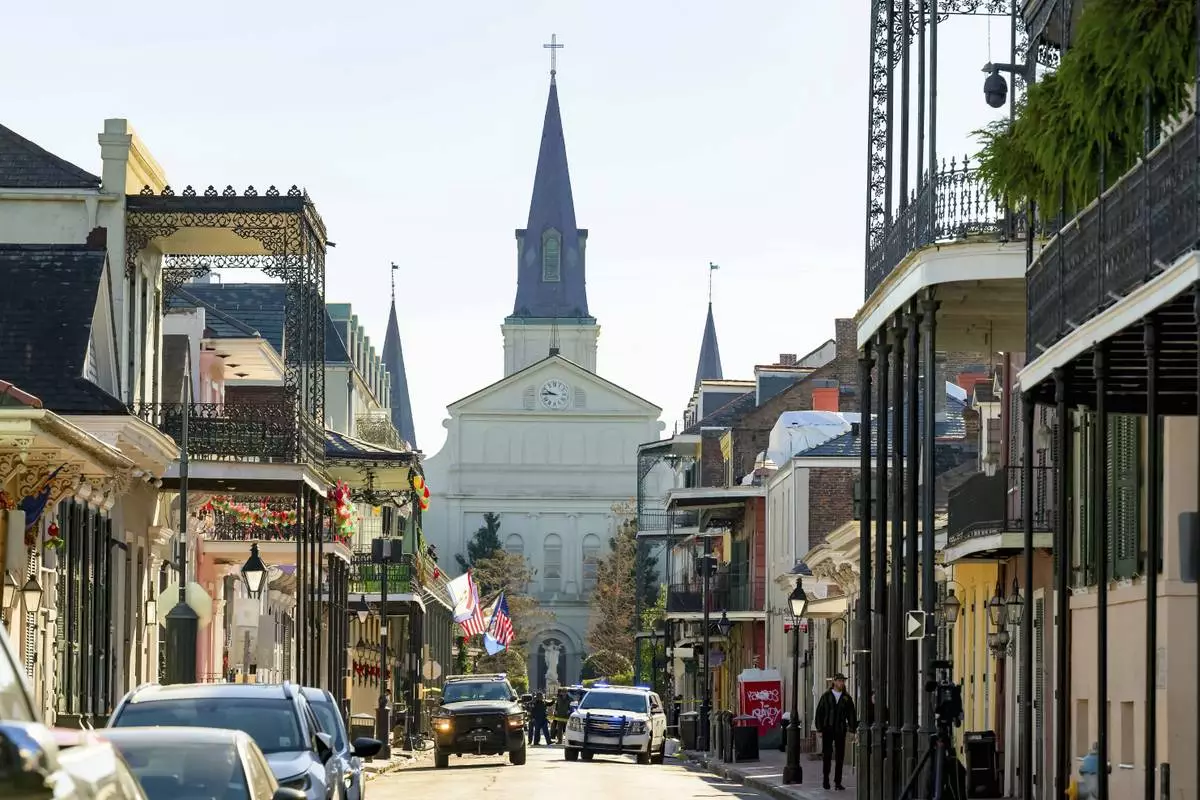
The St. Louis Cathedral is seen on Orleans St is seen in the French Quarter where a suspicious package was detonated after a person drove a truck into a crowd earlier on Bourbon Street on Wednesday, Jan. 1, 2025. (AP Photo/Matthew Hinton)
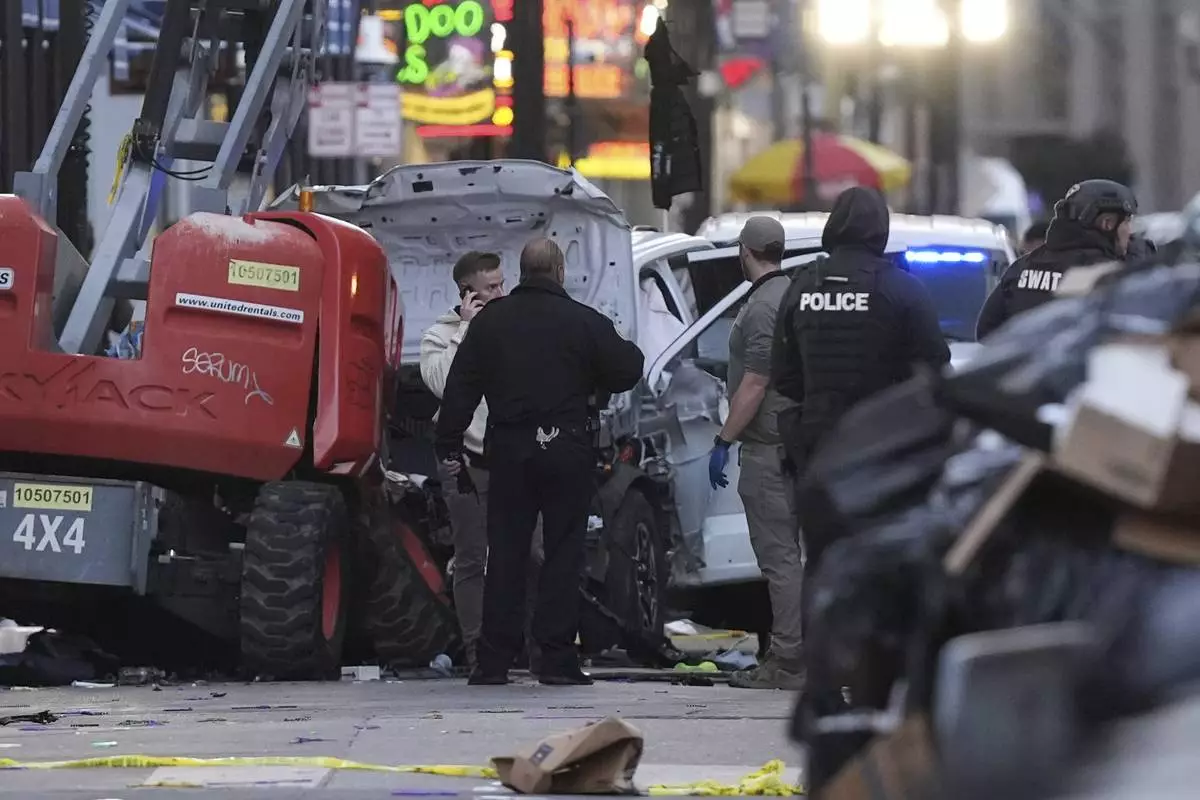
Emergency services attend the scene on Bourbon Street after a vehicle drove into a crowd on New Orleans' Canal and Bourbon Street, Wednesday Jan. 1, 2025. (AP Photo/Gerald Herbert)
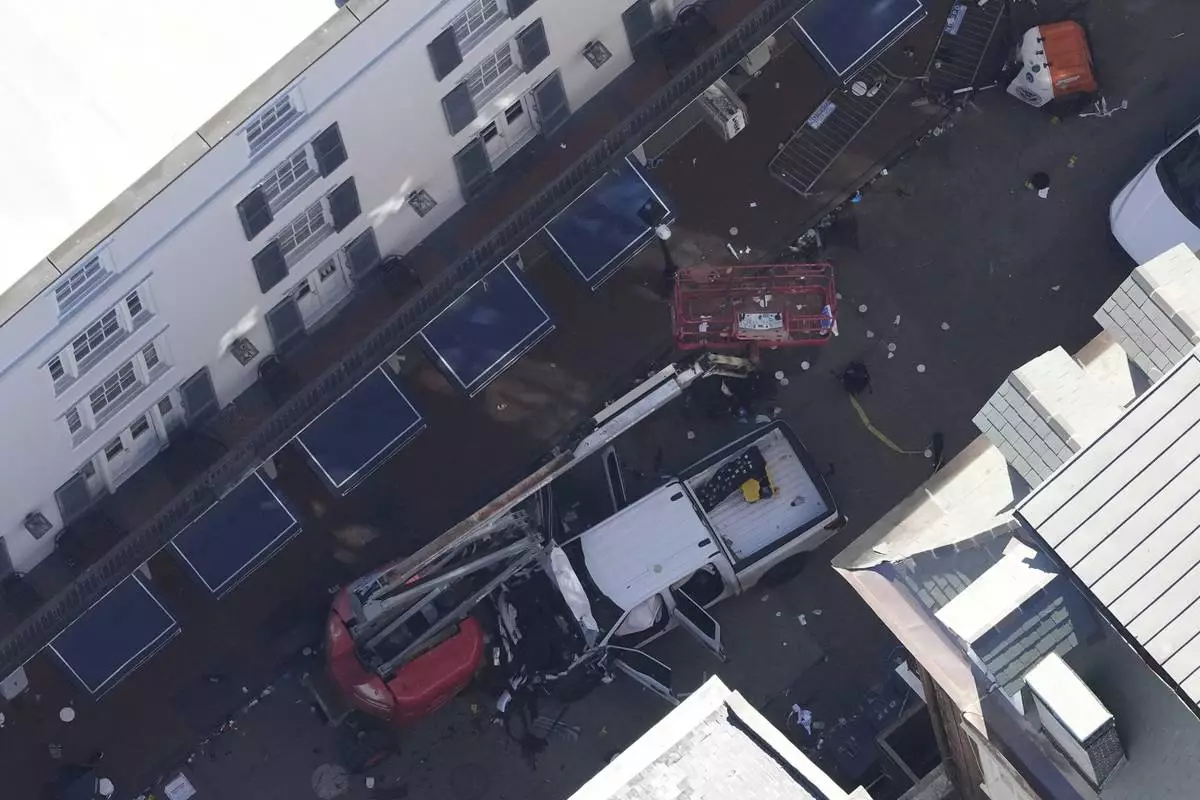
Investigators work the scene after a person drove a vehicle into a crowd earlier on Canal and Bourbon Street in New Orleans, Wednesday, Jan. 1, 2025. (AP Photo/Gerald Herbert)
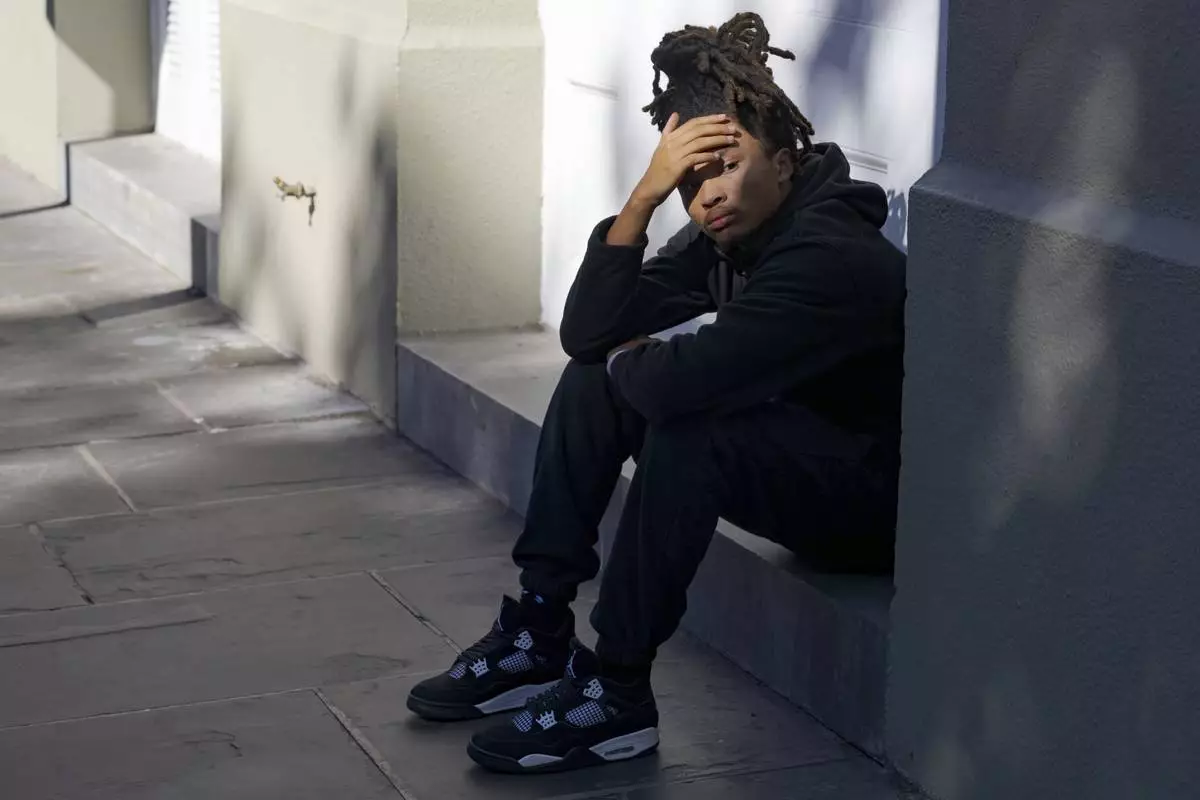
Trevant Hayes, 20, sits in the French Quarter after the death of his friend, Nikyra Dedeaux, 18, after a pickup truck crashed into pedestrians on Bourbon Street followed by a shooting in the French Quarter in New Orleans, Wednesday, Jan. 1, 2025. (AP Photo/Matthew Hinton)
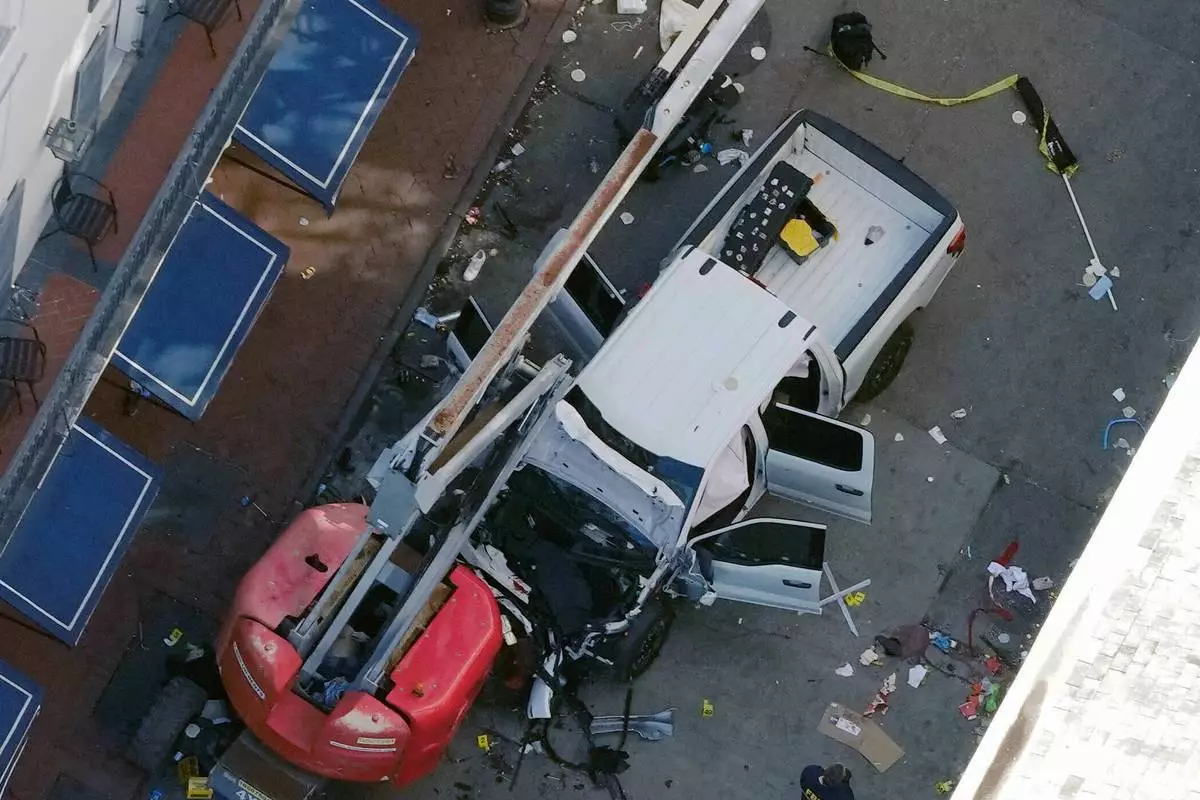
A black flag with white lettering lies on the ground rolled up behind a pickup truck that a man drove into a crowd on Bourbon Street in New Orleans, killing and injuring a number of people, early Wednesday morning, Jan. 1, 2025. The FBI said they recovered an Islamic State group flag, which is black with white lettering, from the vehicle. (AP Photo/Gerald Herbert)
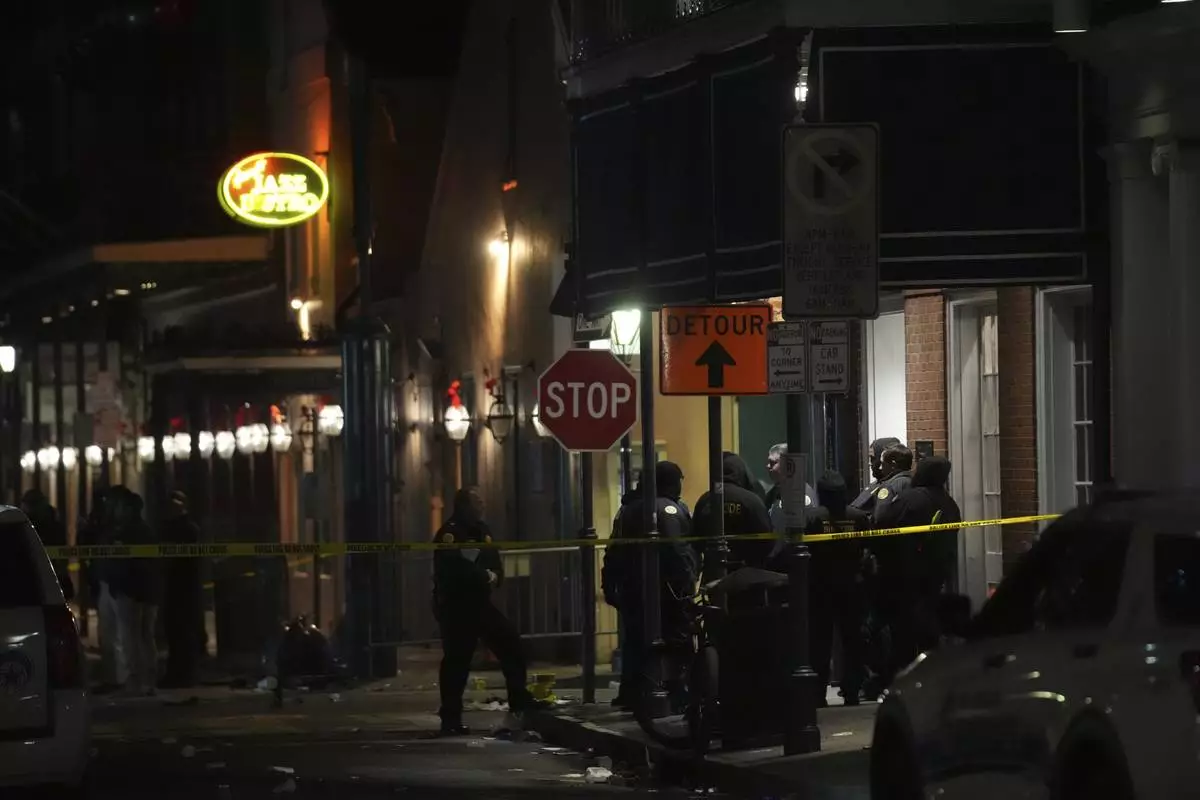
Emergency services attend the scene after a vehicle drove into a crowd on New Orleans' Canal and Bourbon Street, Wednesday Jan. 1, 2025. (AP Photo/Gerald Herbert)
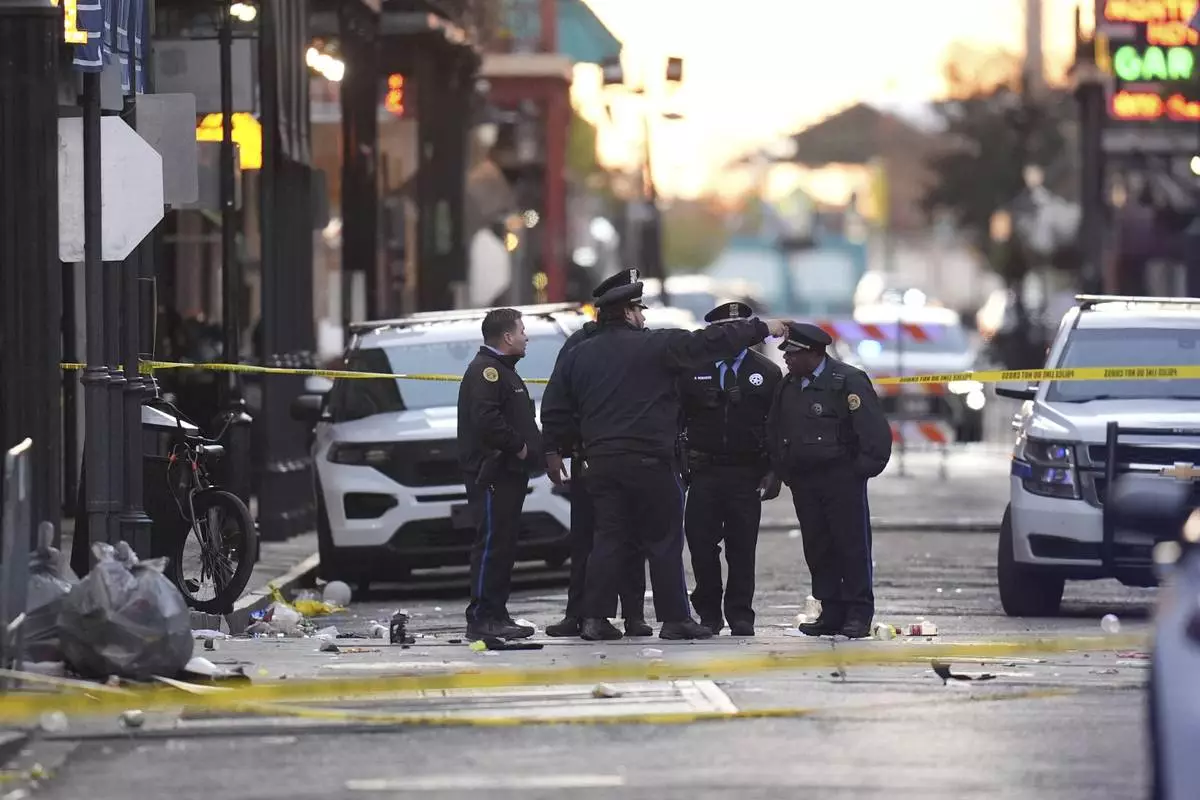
Security personnel gather at the scene on Bourbon Street after a vehicle drove into a crowd on New Orleans' Canal and Bourbon Street, Wednesday Jan. 1, 2025. (AP Photo/Gerald Herbert)
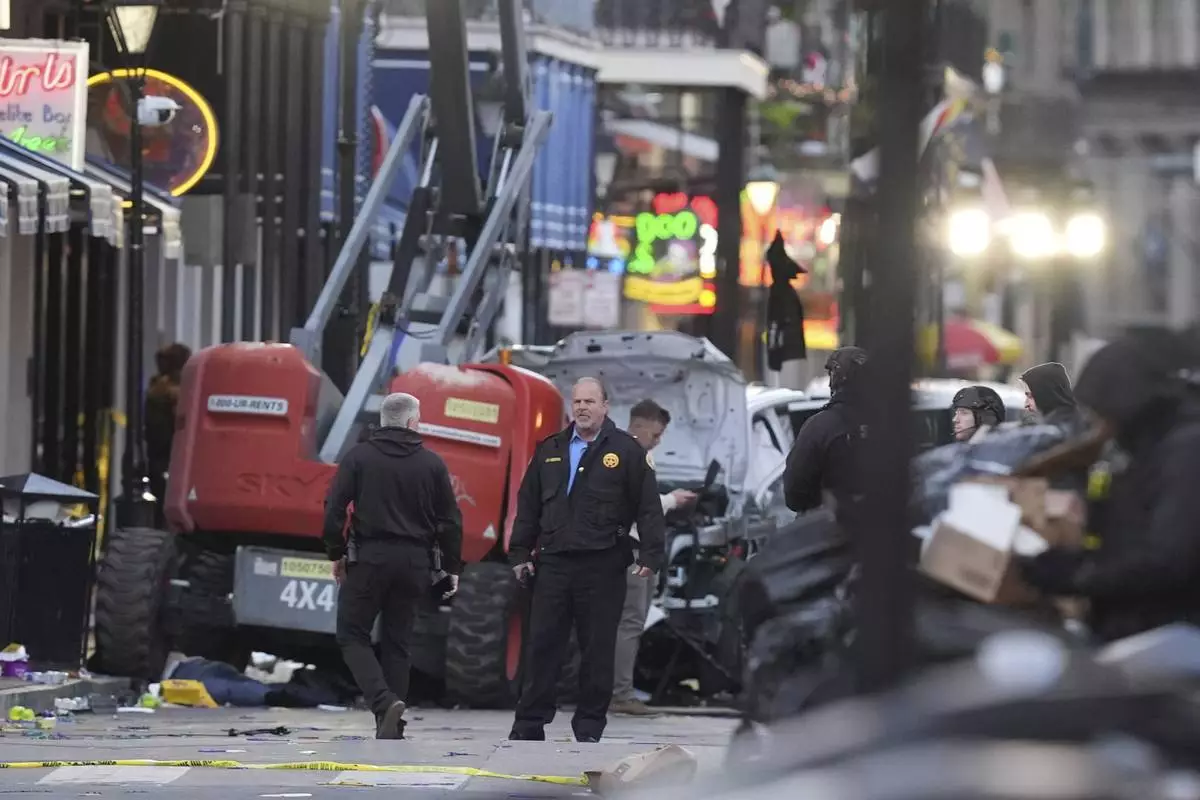
EDS NOTE: GRAPHIC CONTENT - Security personnel investigate the scene on Bourbon Street after a vehicle drove into a crowd on New Orleans' Canal and Bourbon Street, Wednesday Jan. 1, 2025. (AP Photo/Gerald Herbert)
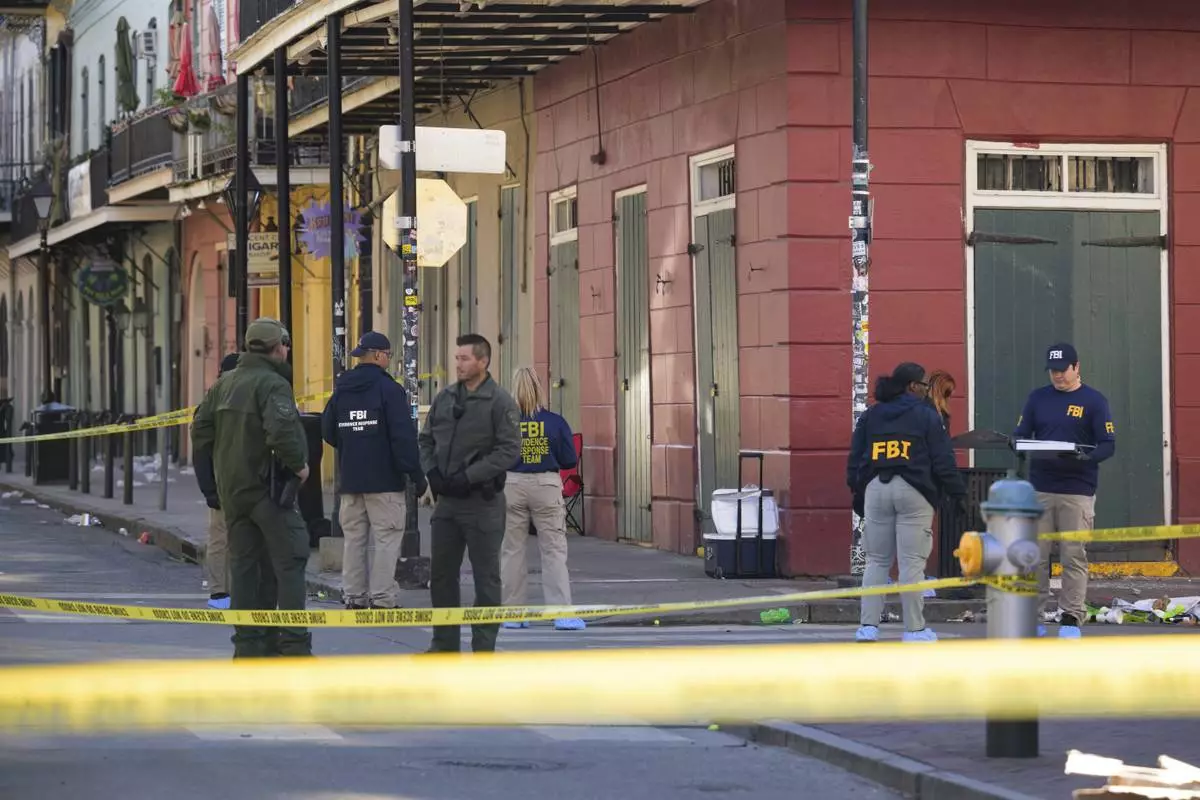
The FBI investigates the area on Orleans St and Bourbon Street by St. Louis Cathedral in the French Quarter where a suspicious package was detonated after a person drove a truck into a crowd earlier on Bourbon Street on Wednesday, Jan. 1, 2025. (AP Photo/Matthew Hinton)
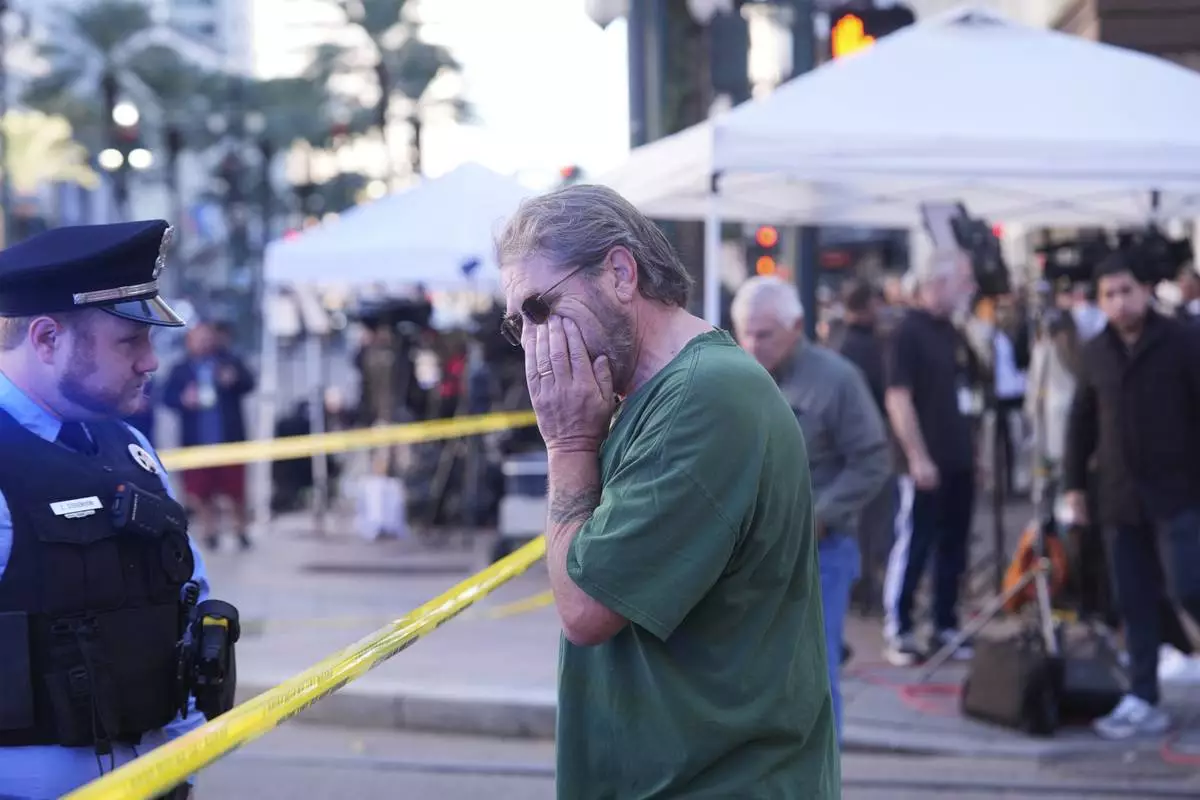
Edward Bruski, center, gets emotional at the scene where a vehicle drove into a crowd on New Orleans' Canal and Bourbon Street, Wednesday Jan. 1, 2025. (AP Photo/Gerald Herbert)
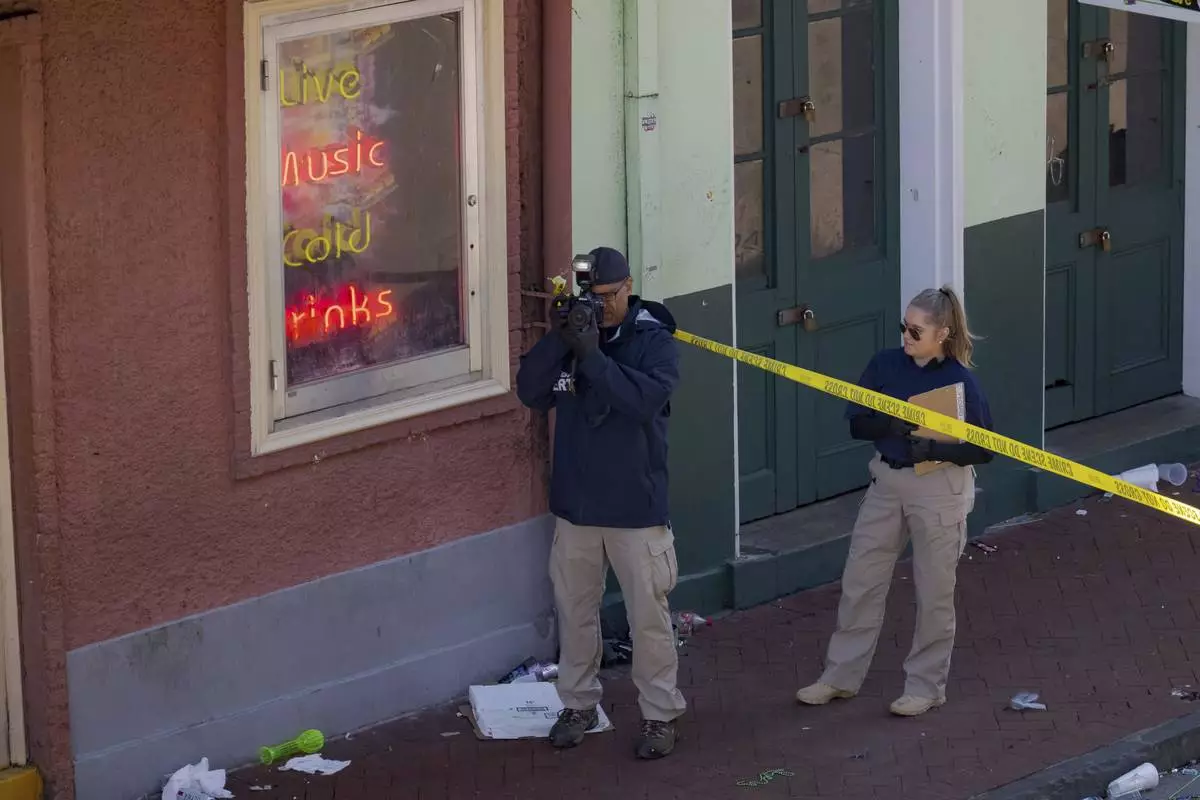
FBI members examine the scene on Bourbon Street during the investigation of a truck fatally crashing into pedestrians on Bourbon Street in the French Quarter in New Orleans, Wednesday, Jan. 1, 2025. (AP Photo/Matthew Hinton)
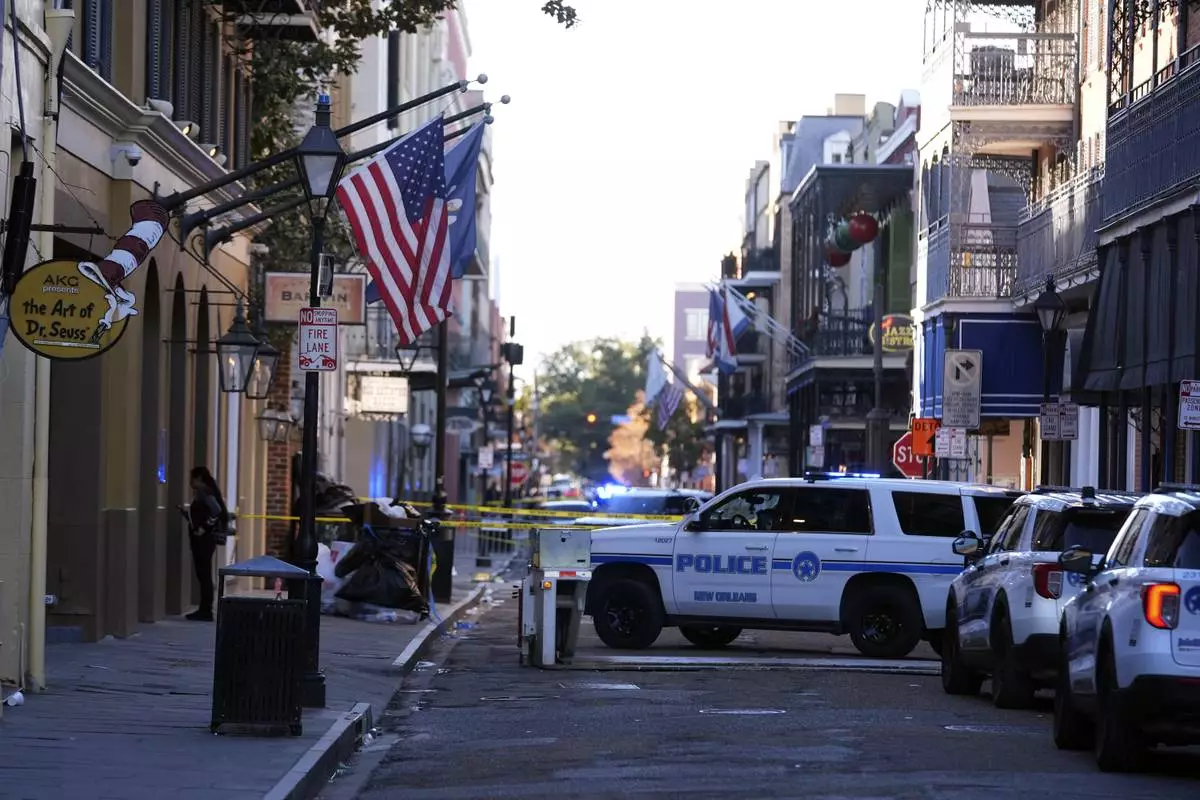
Emergency service vehicles form a security barrier to keep other vehicles out of the French Quarter after a vehicle drove into a crowd on New Orleans' Canal and Bourbon Street, Wednesday Jan. 1, 2025. (AP Photo/Gerald Herbert)
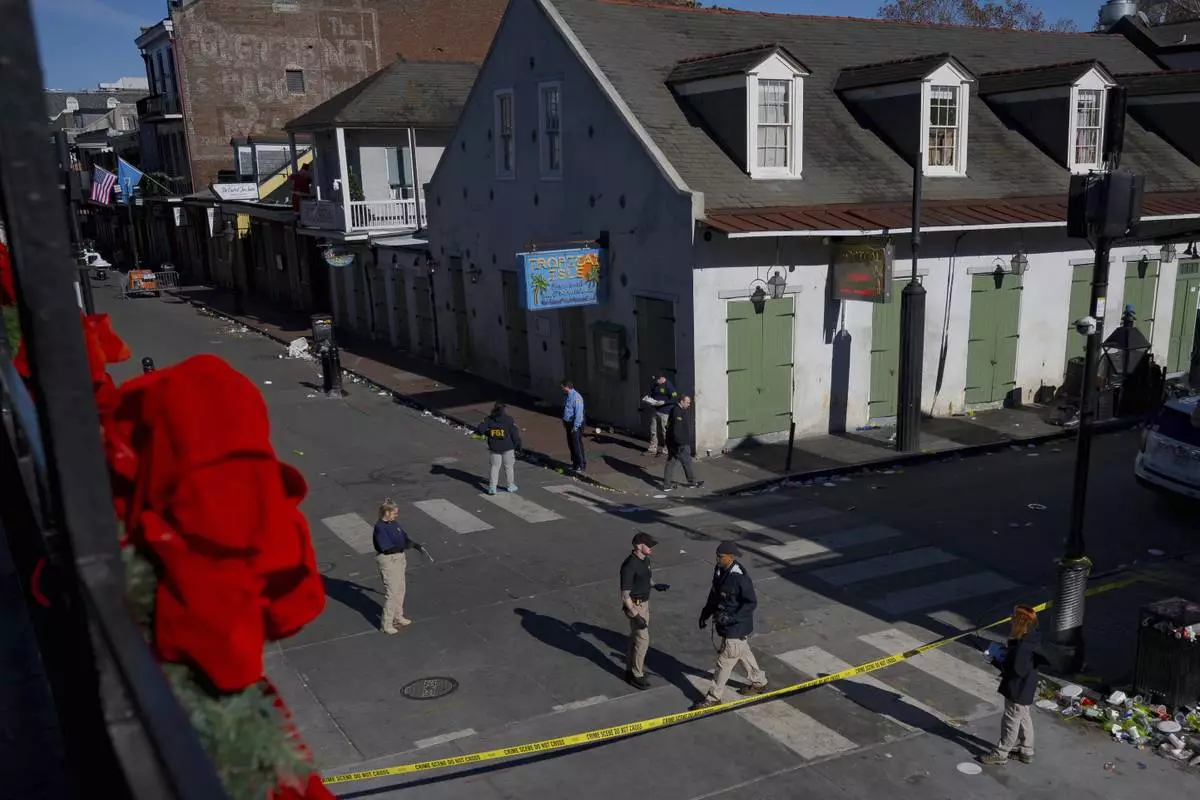
Members of the FBI walk around Bourbon Street during the investigation of a truck fatally crashing into pedestrians on Bourbon Street in the French Quarter in New Orleans, Wednesday, Jan. 1, 2025. (AP Photo/Matthew Hinton)



